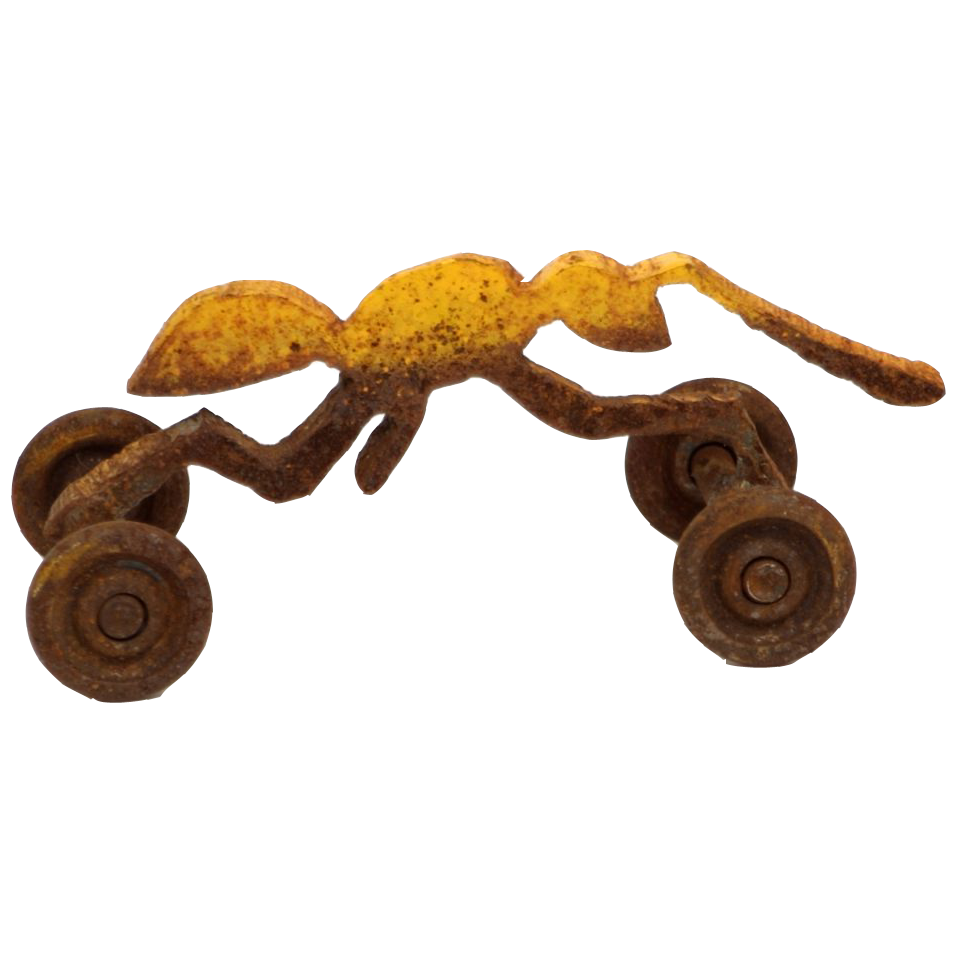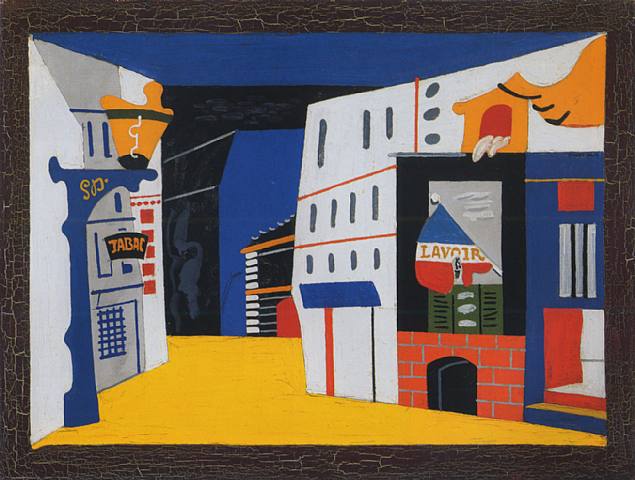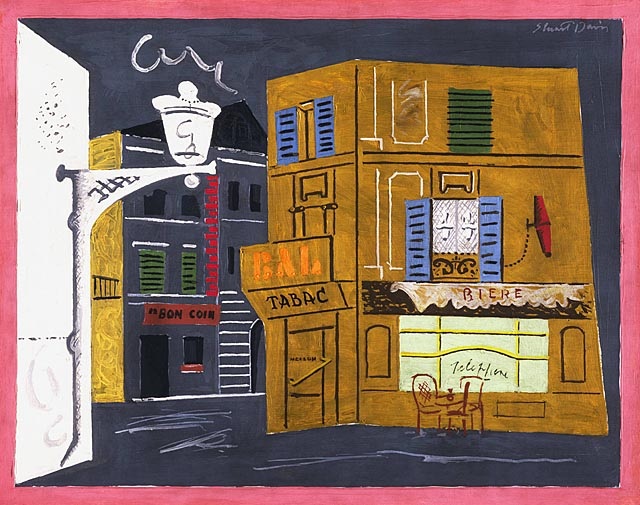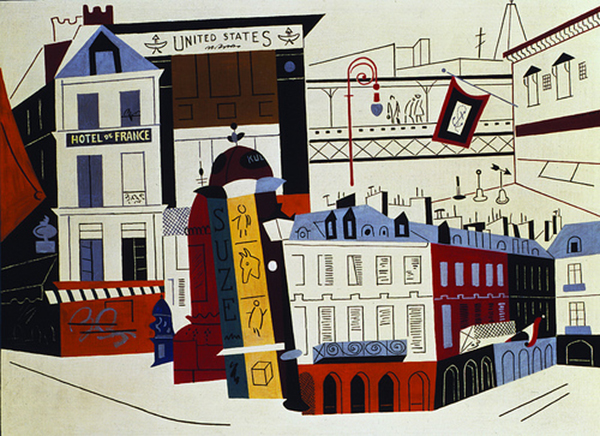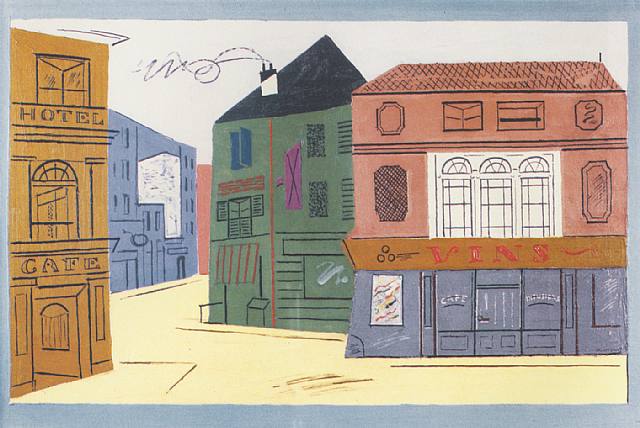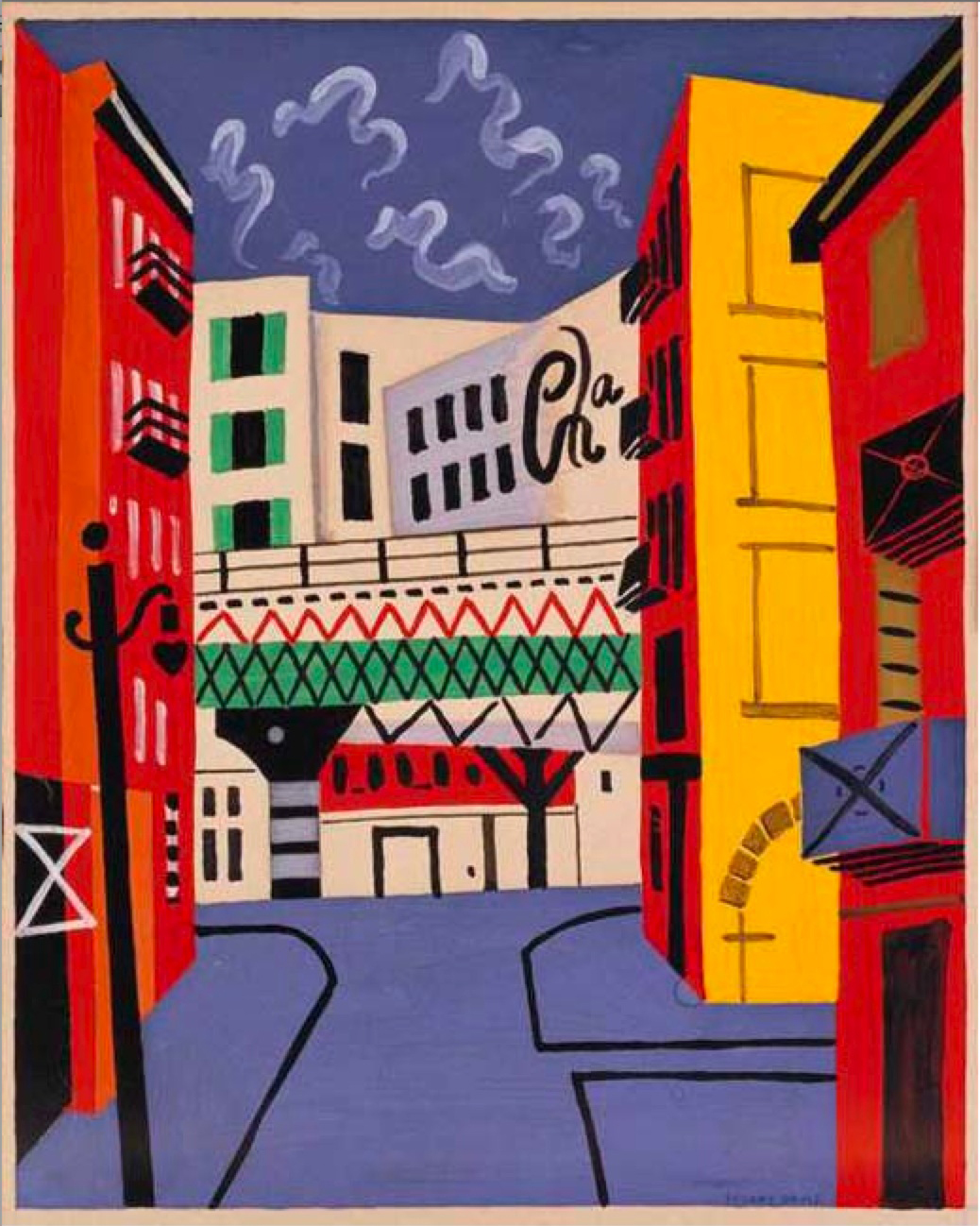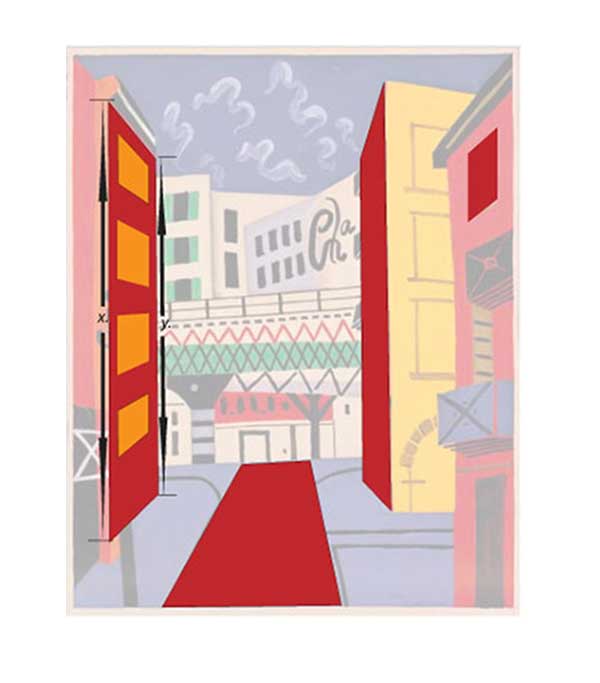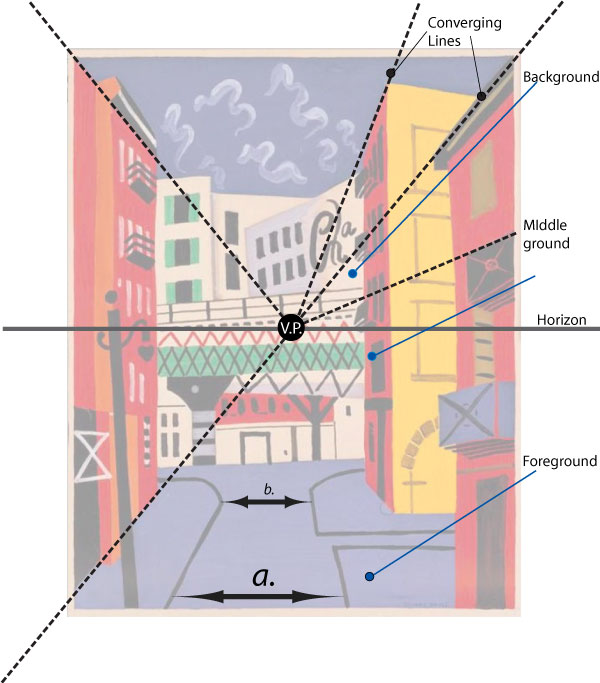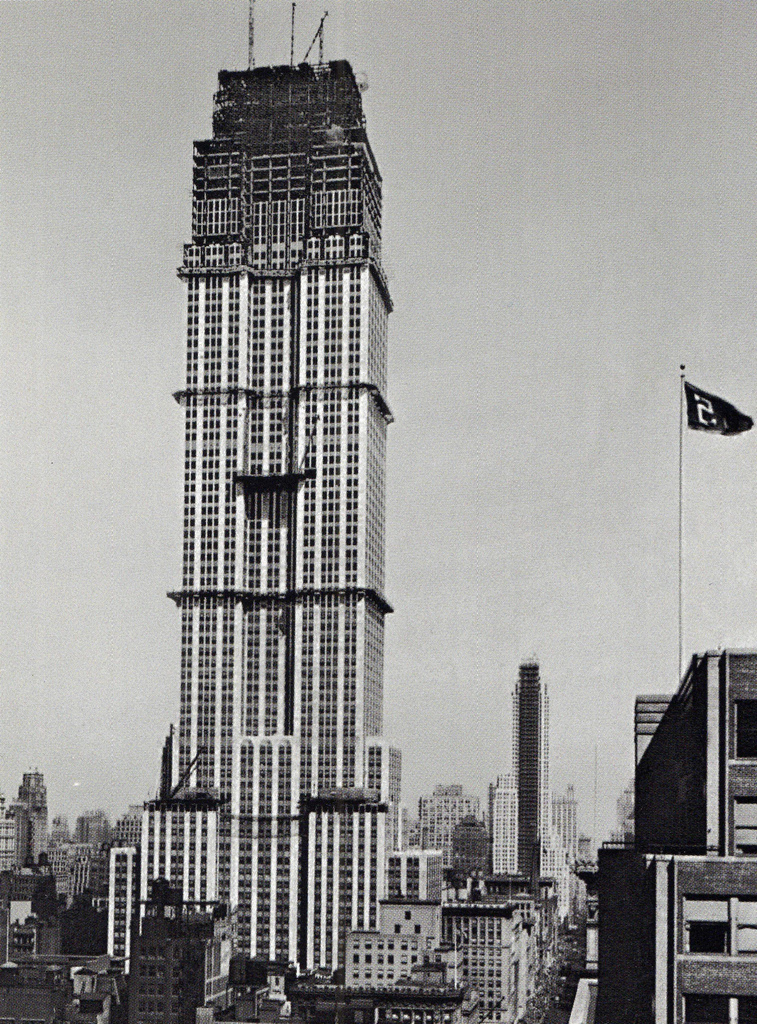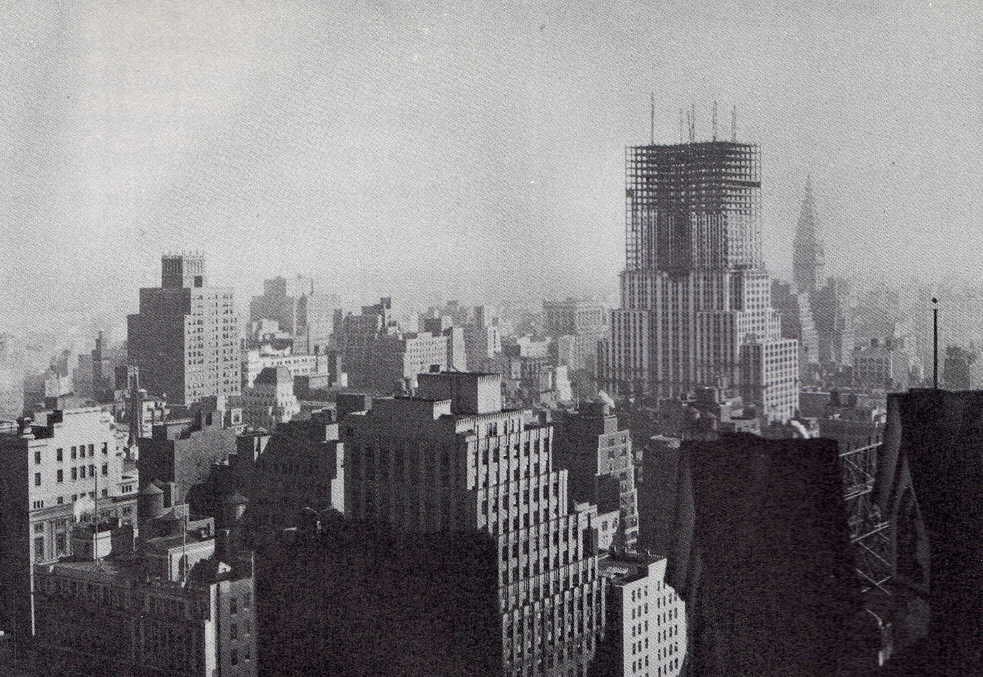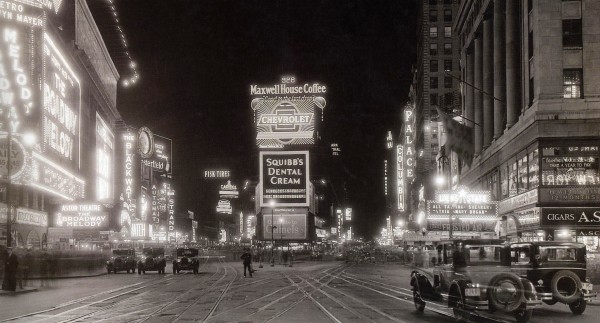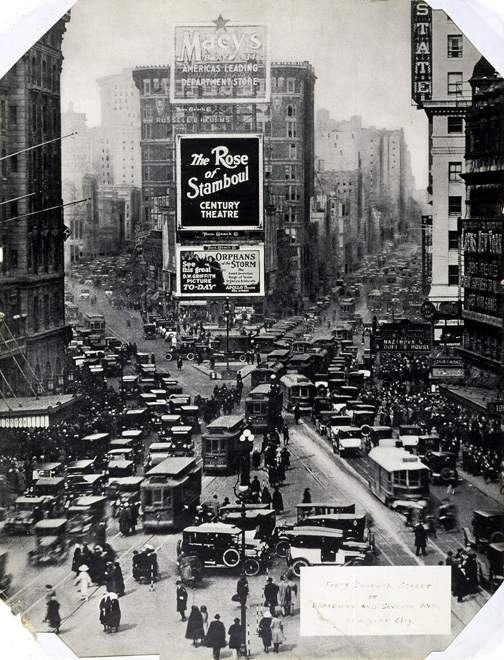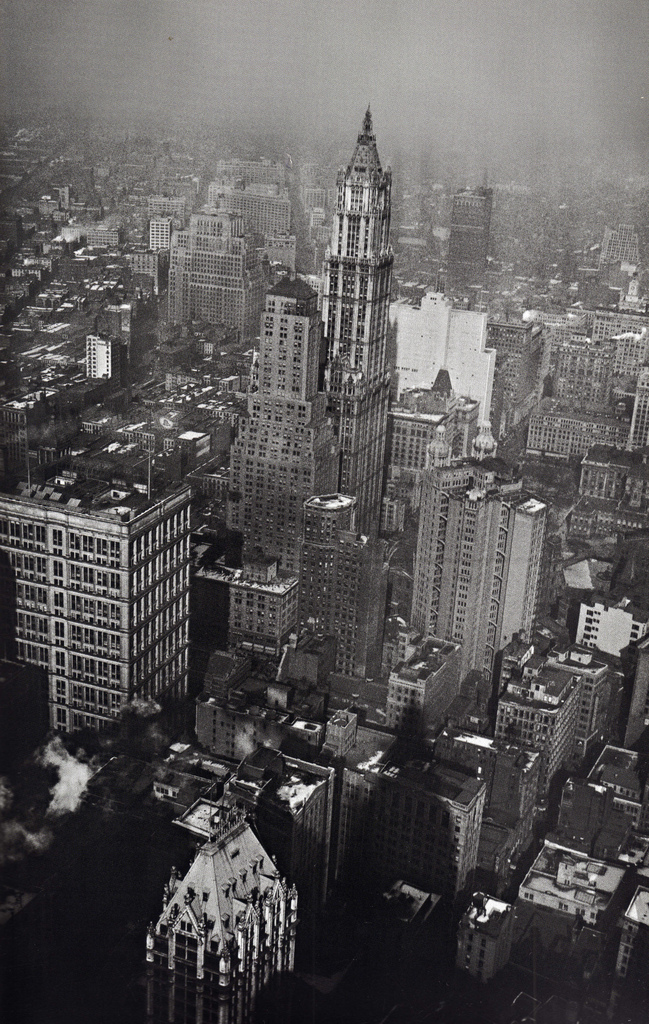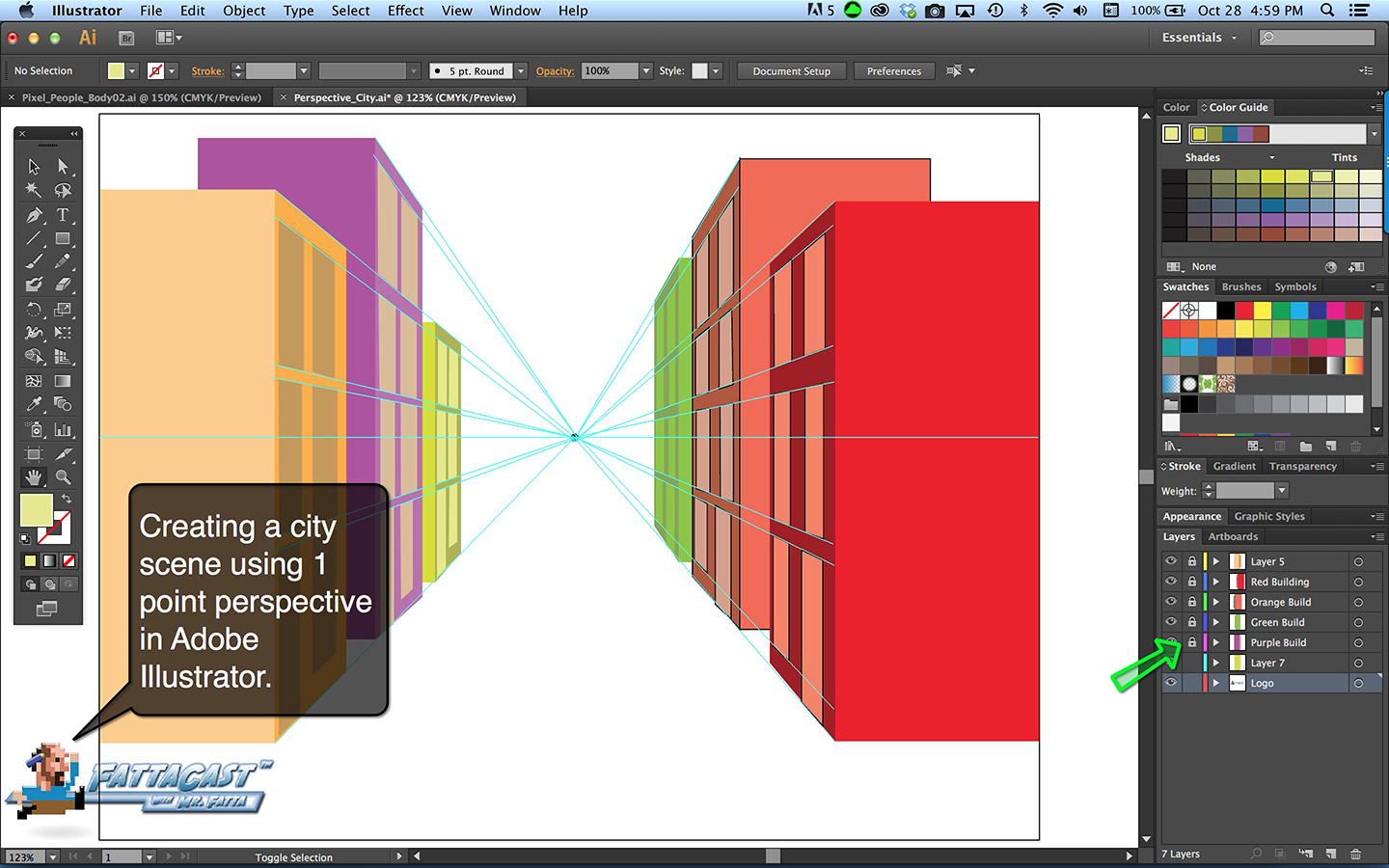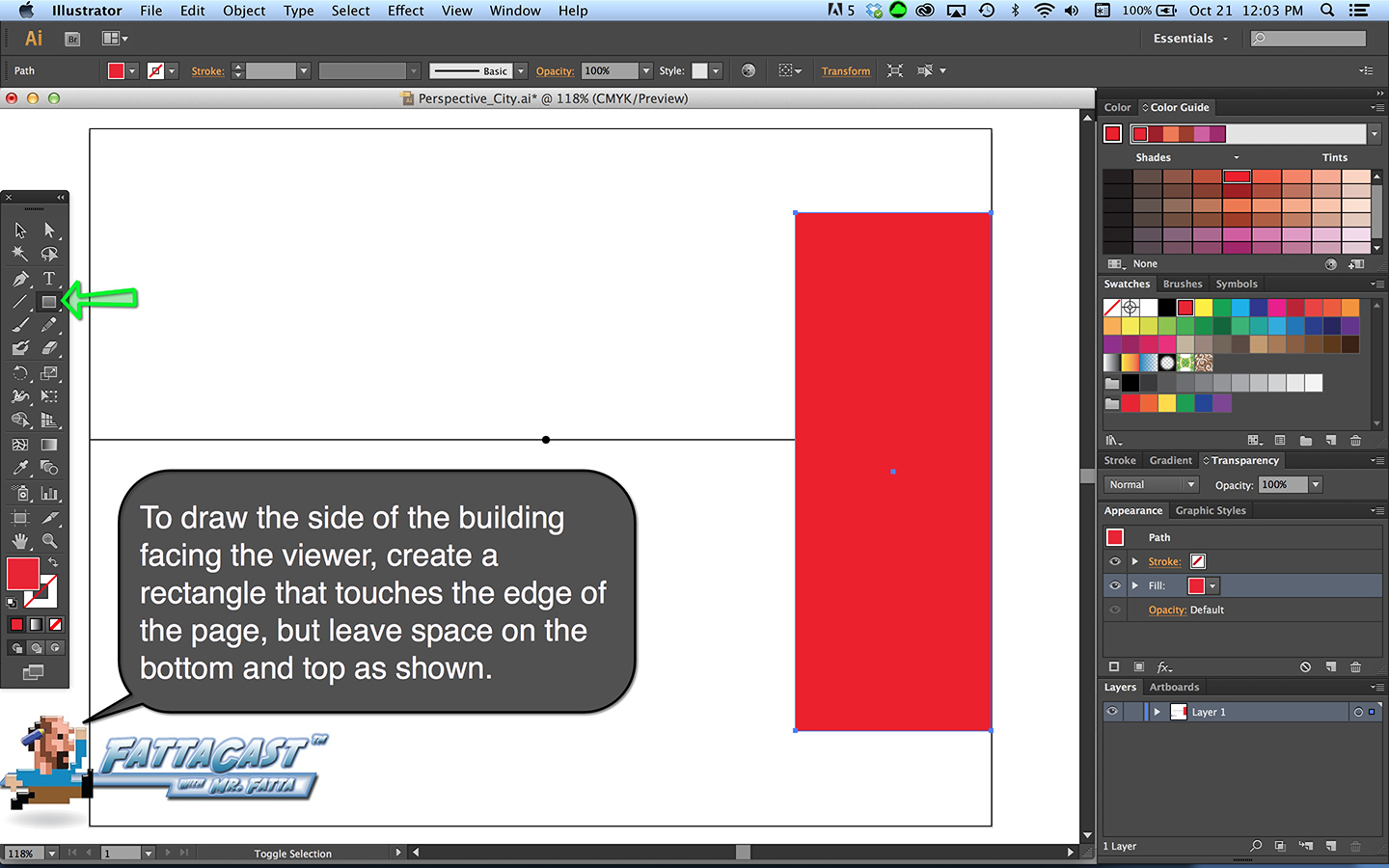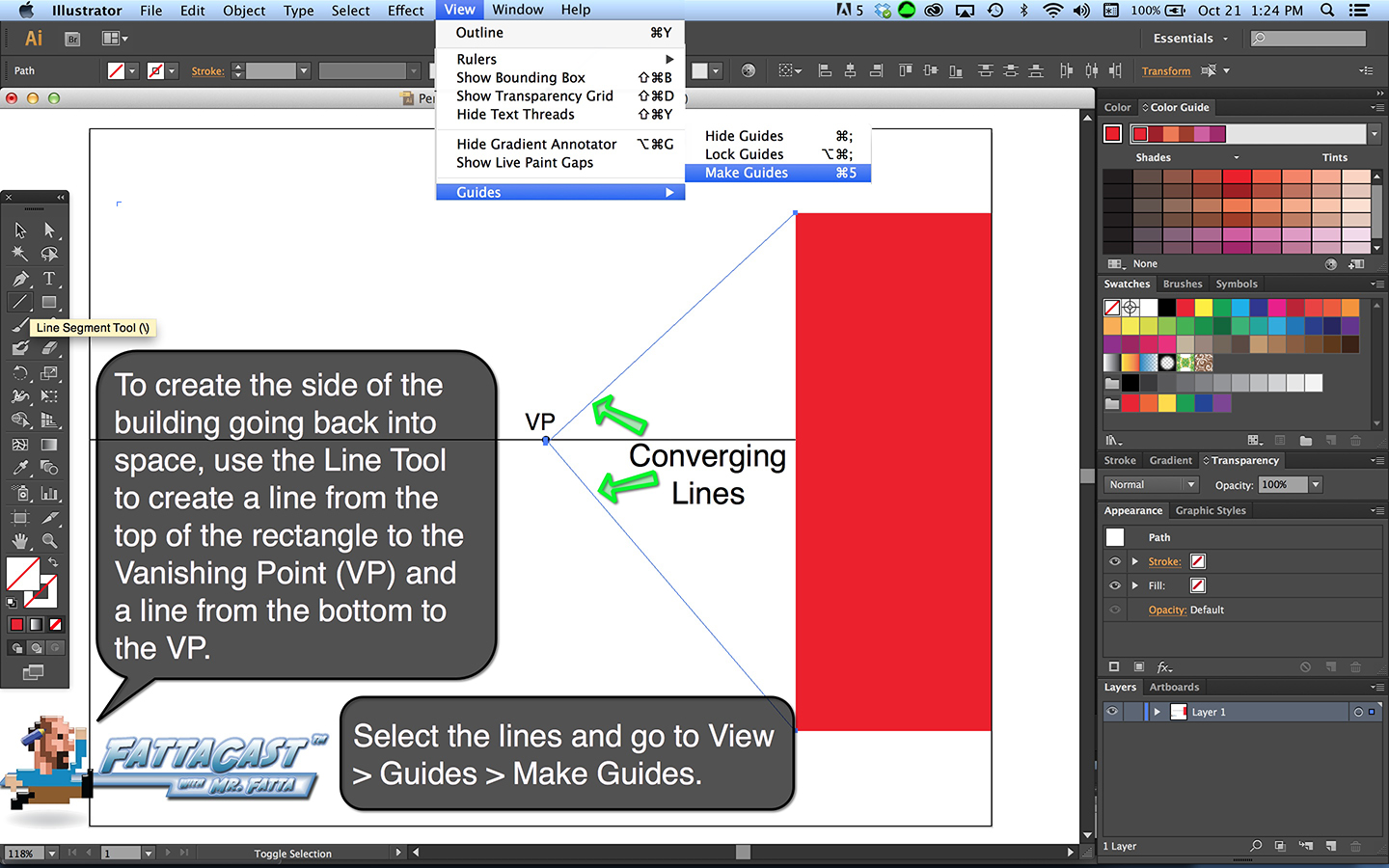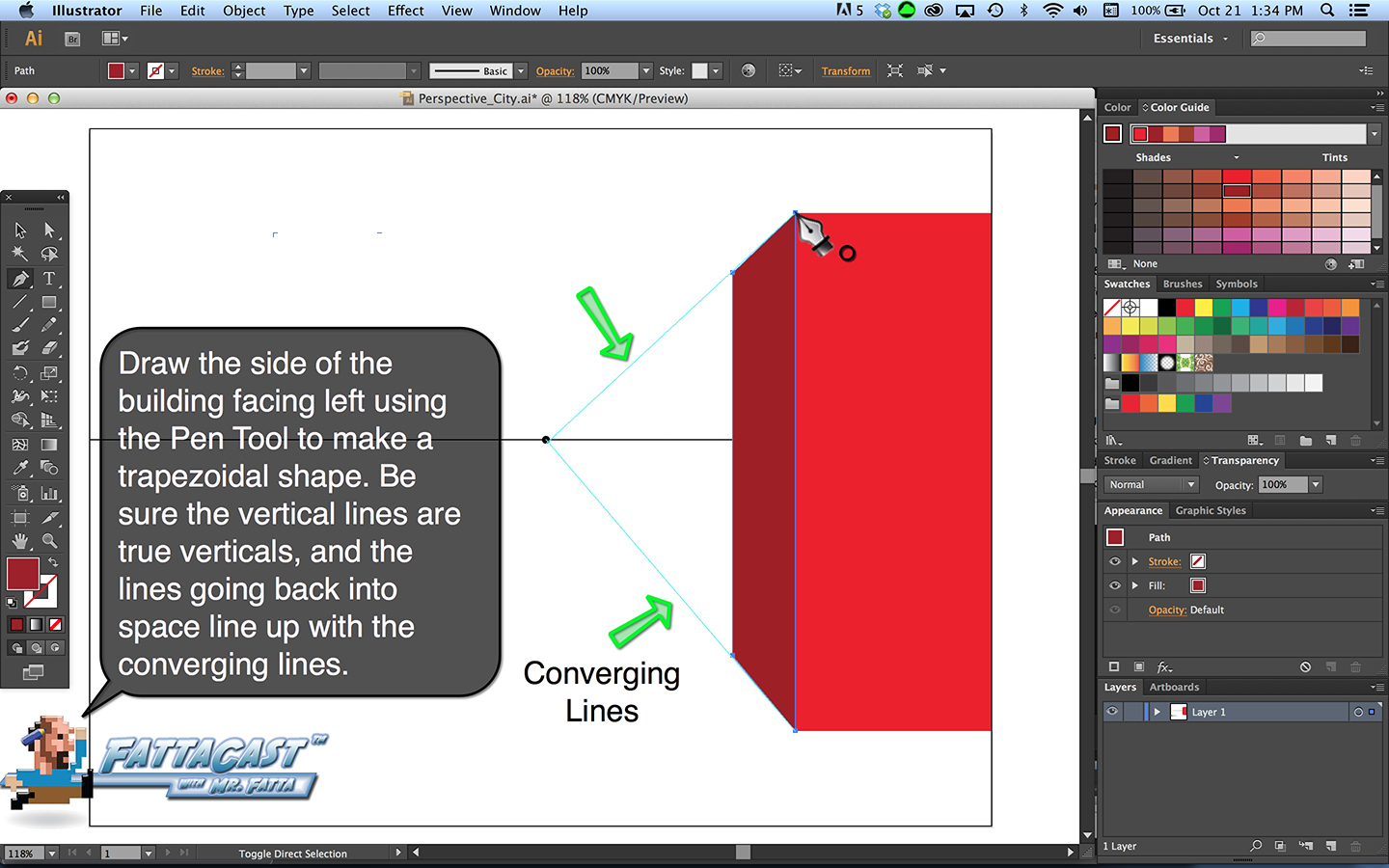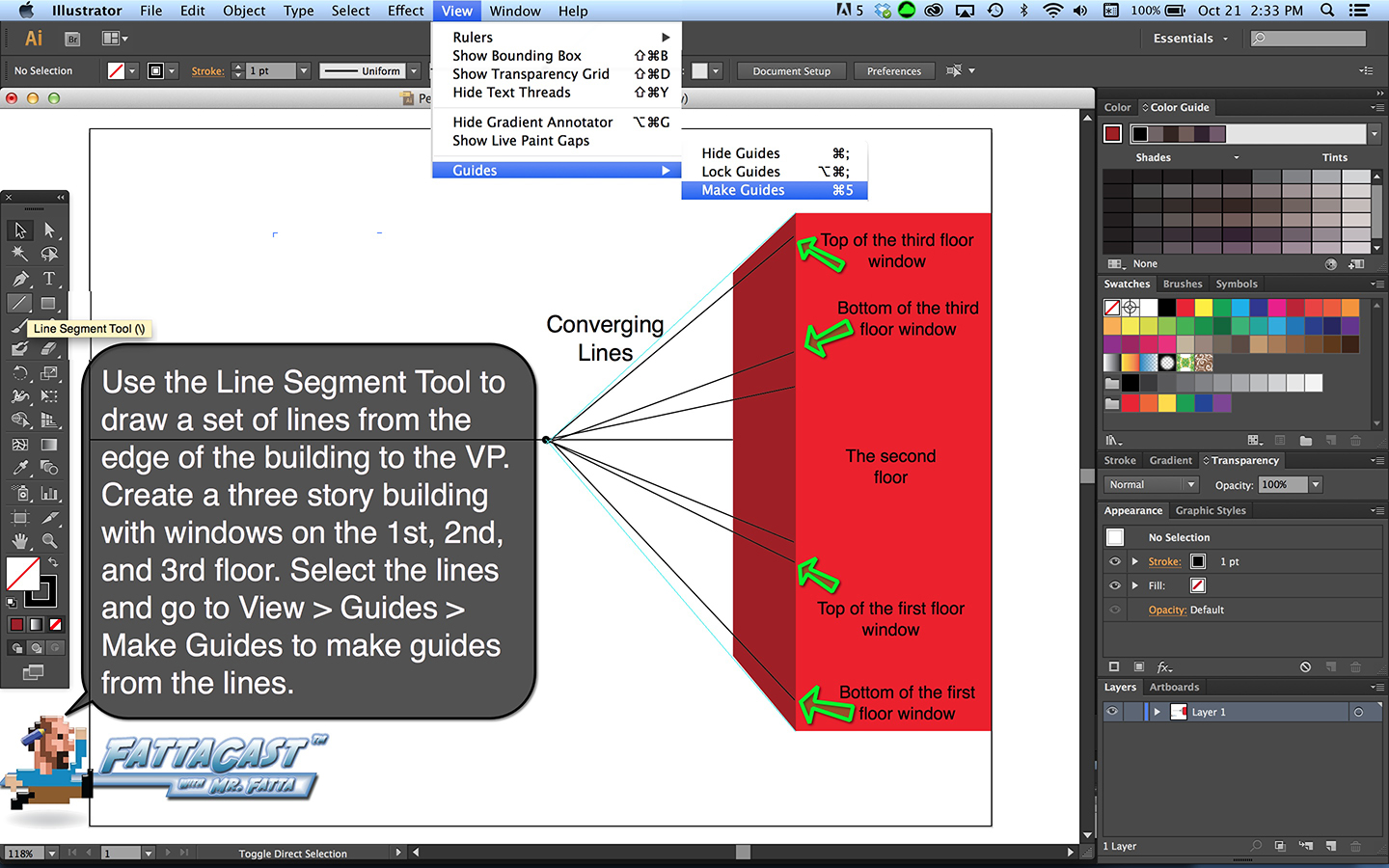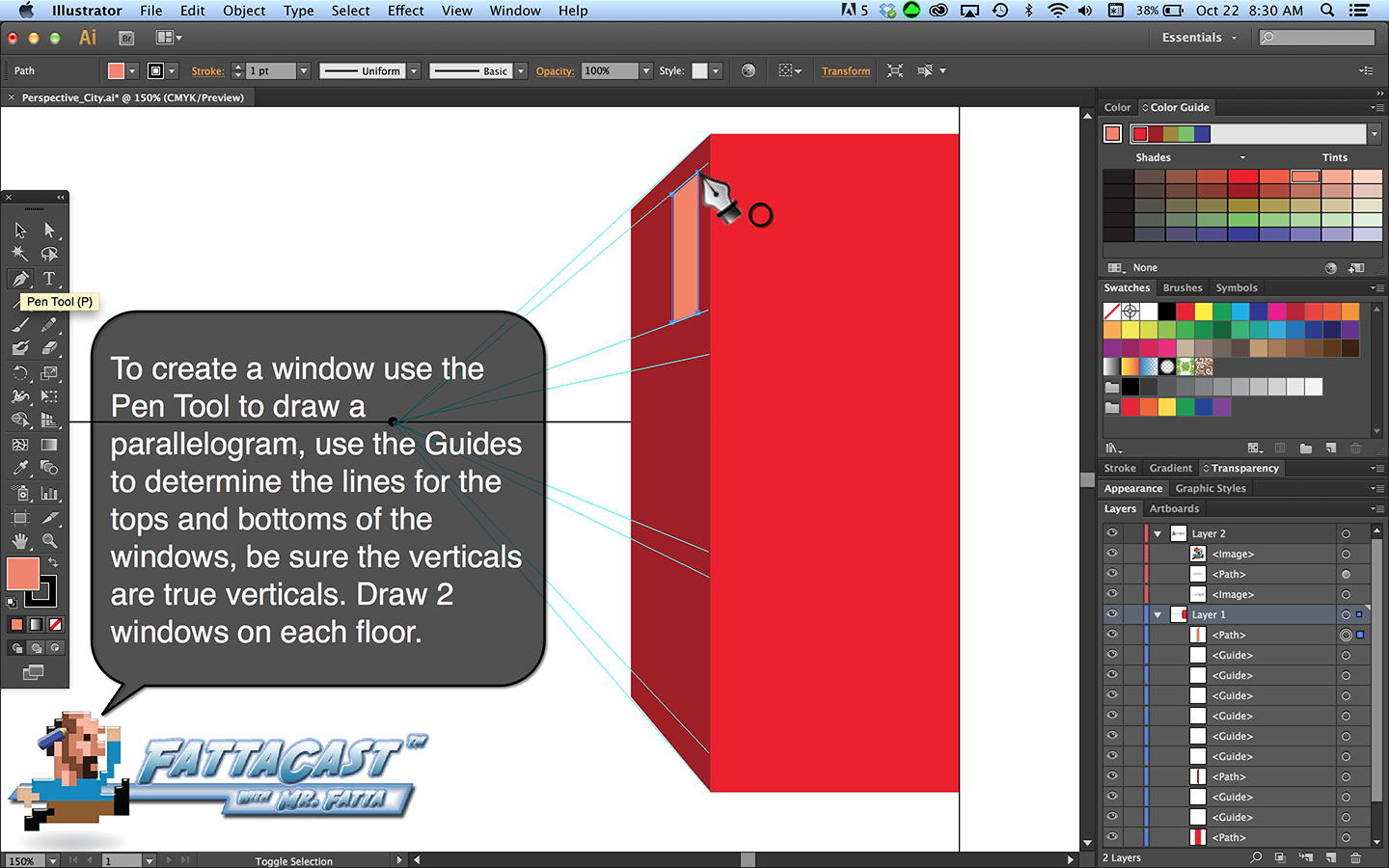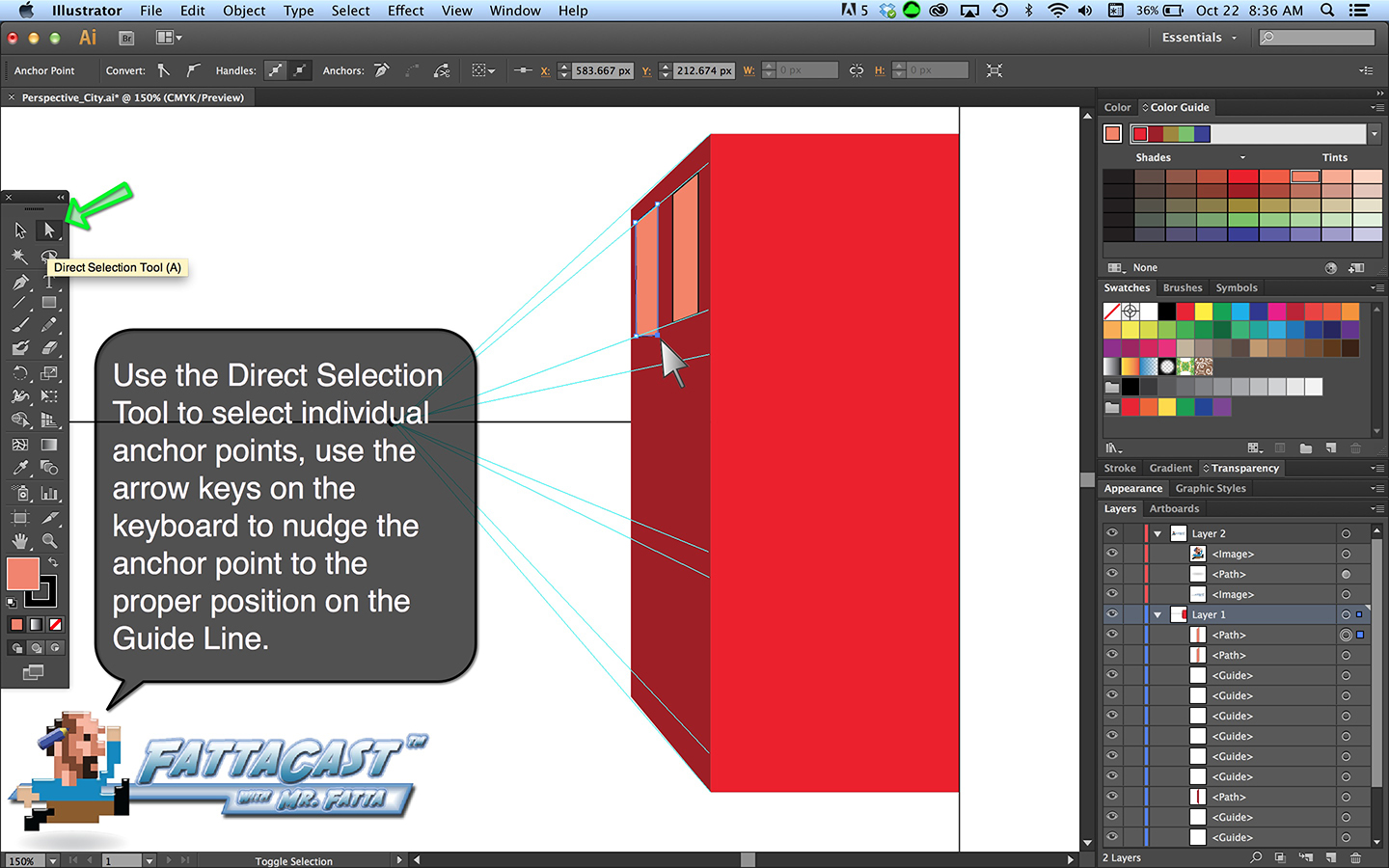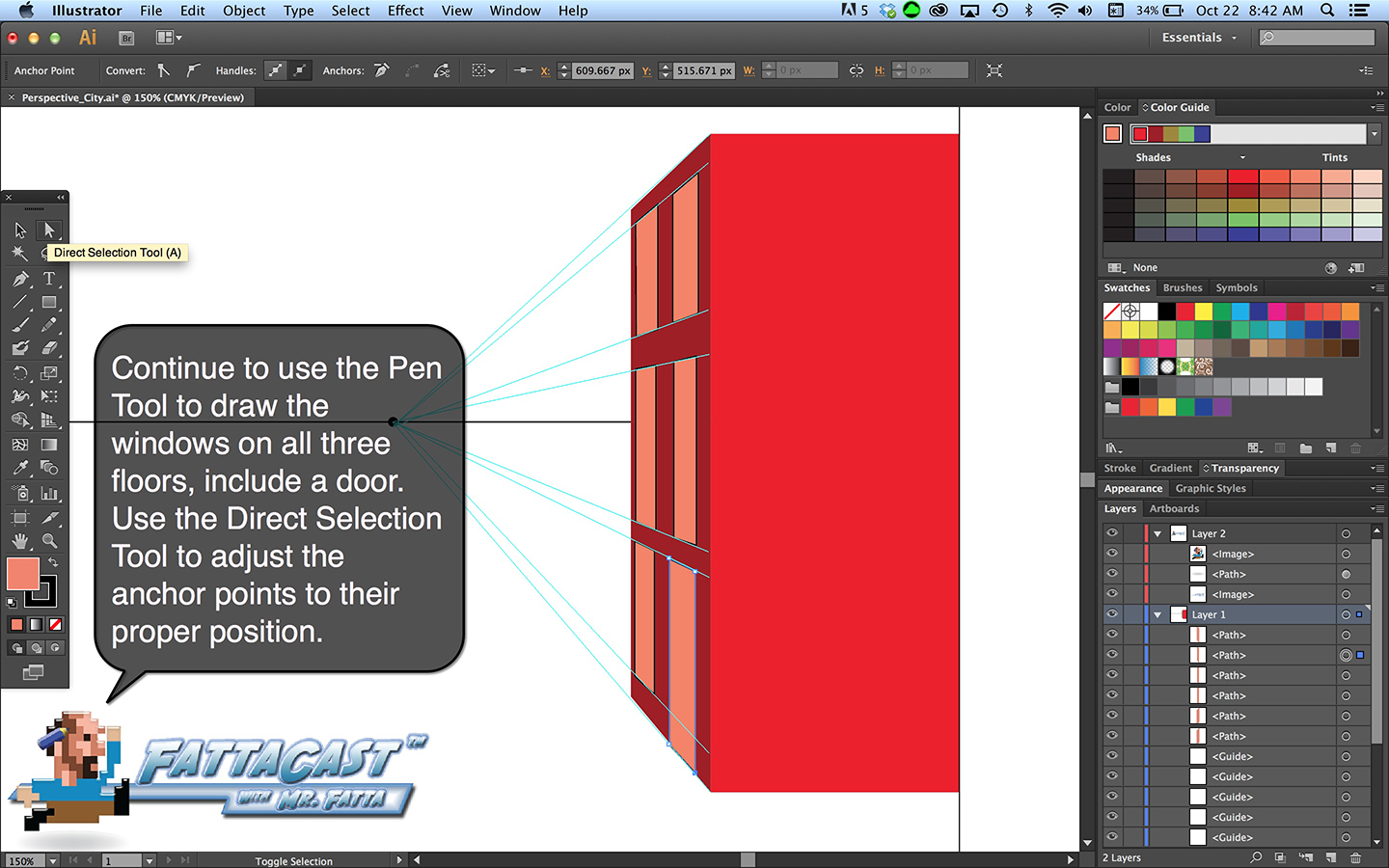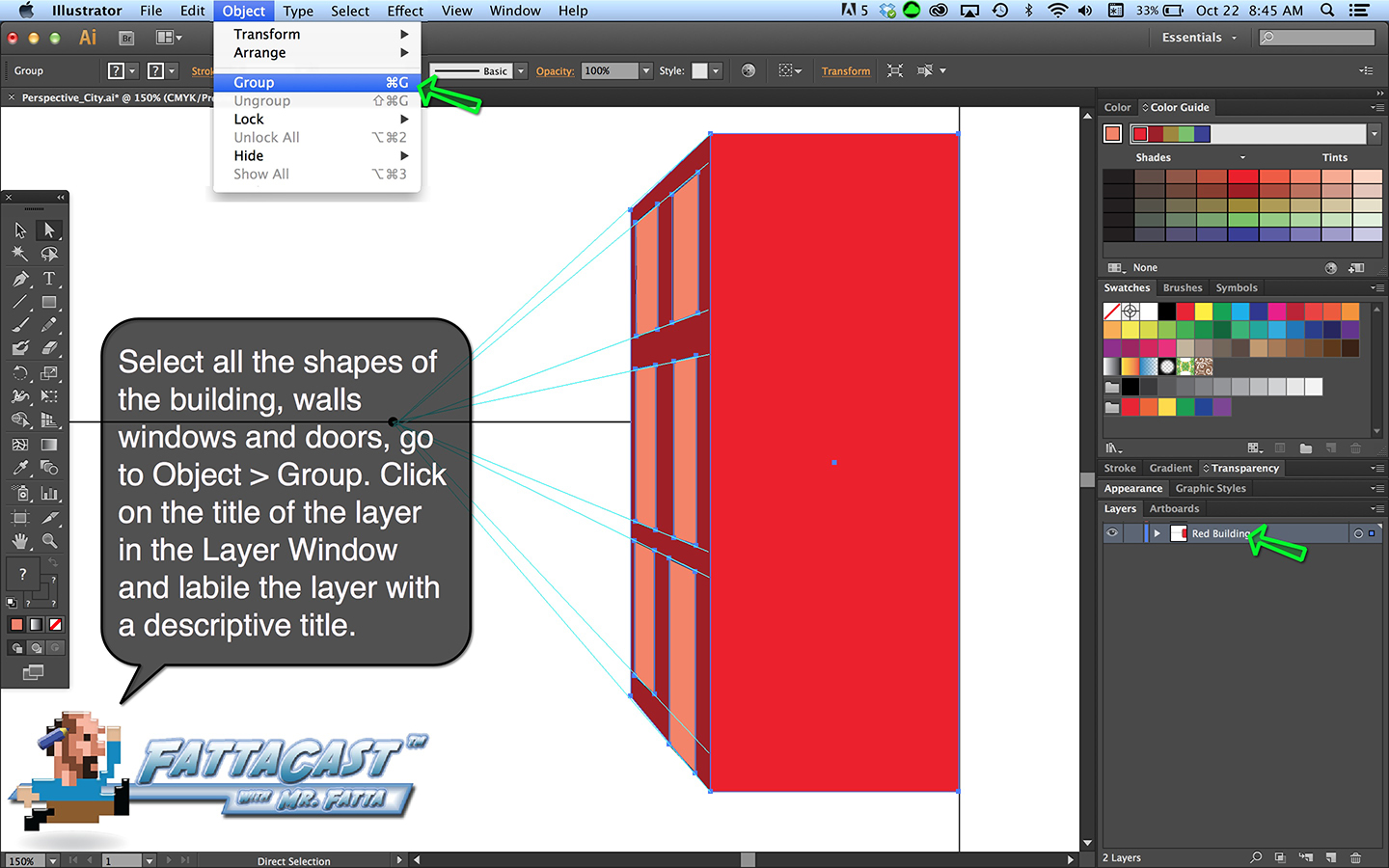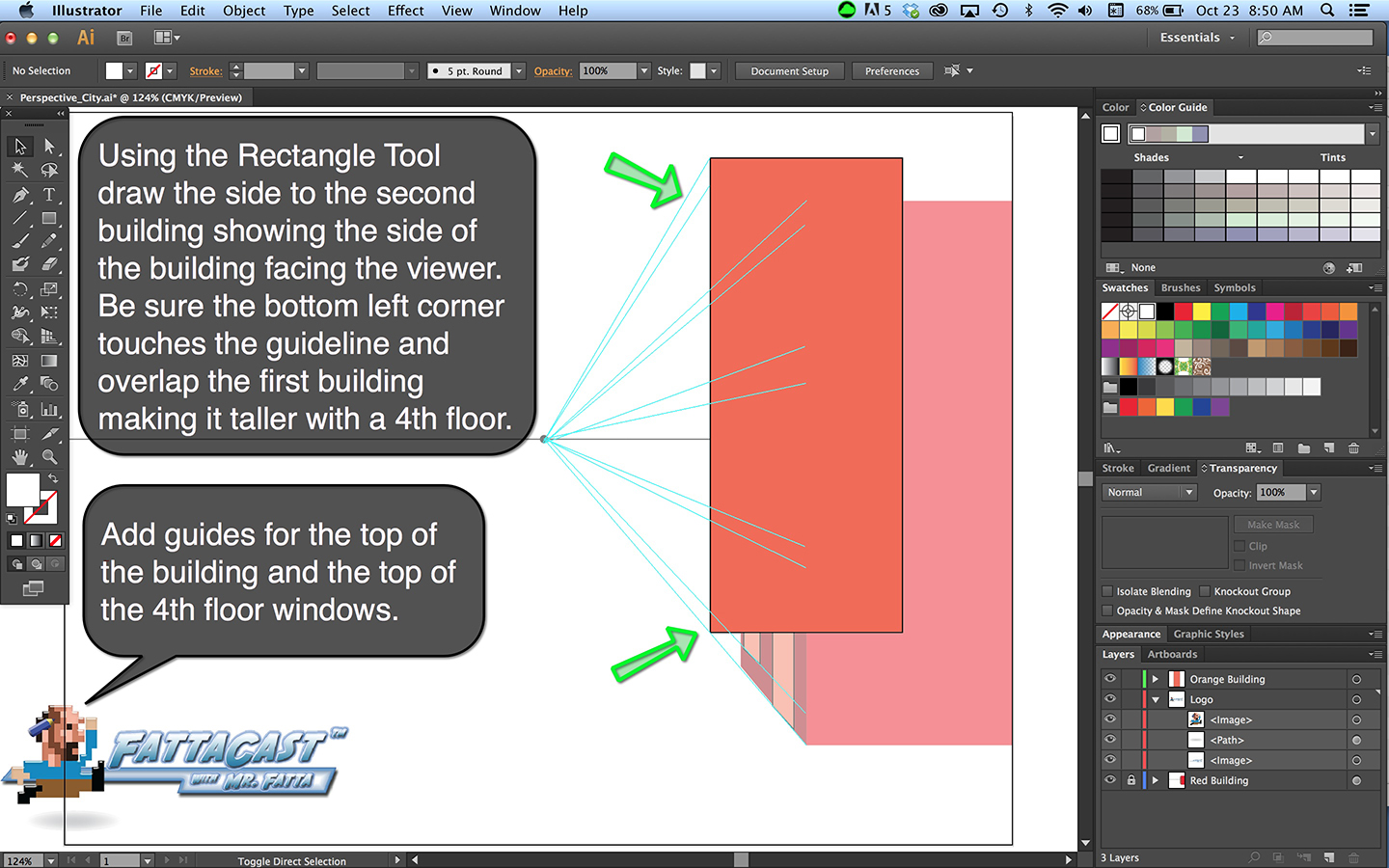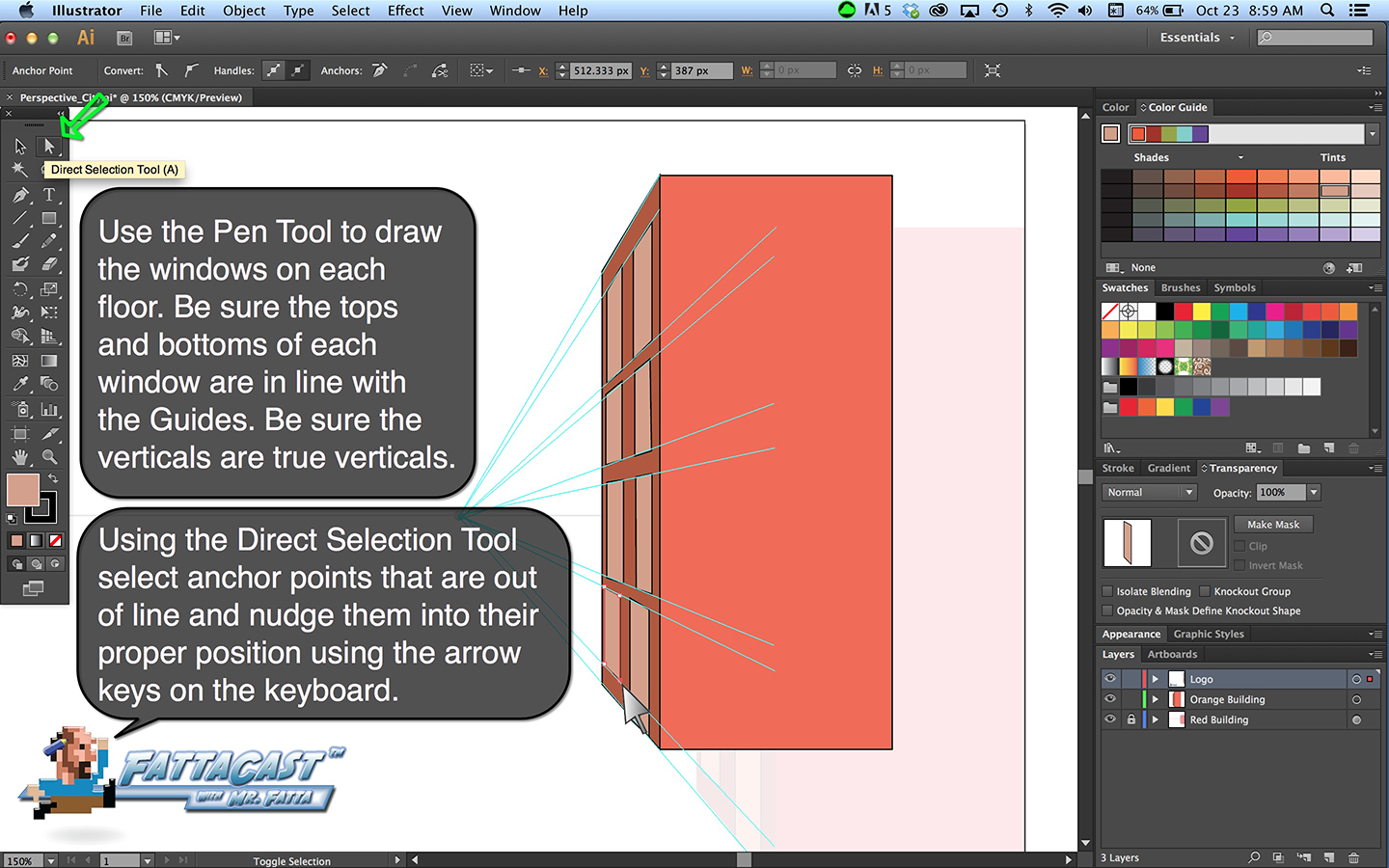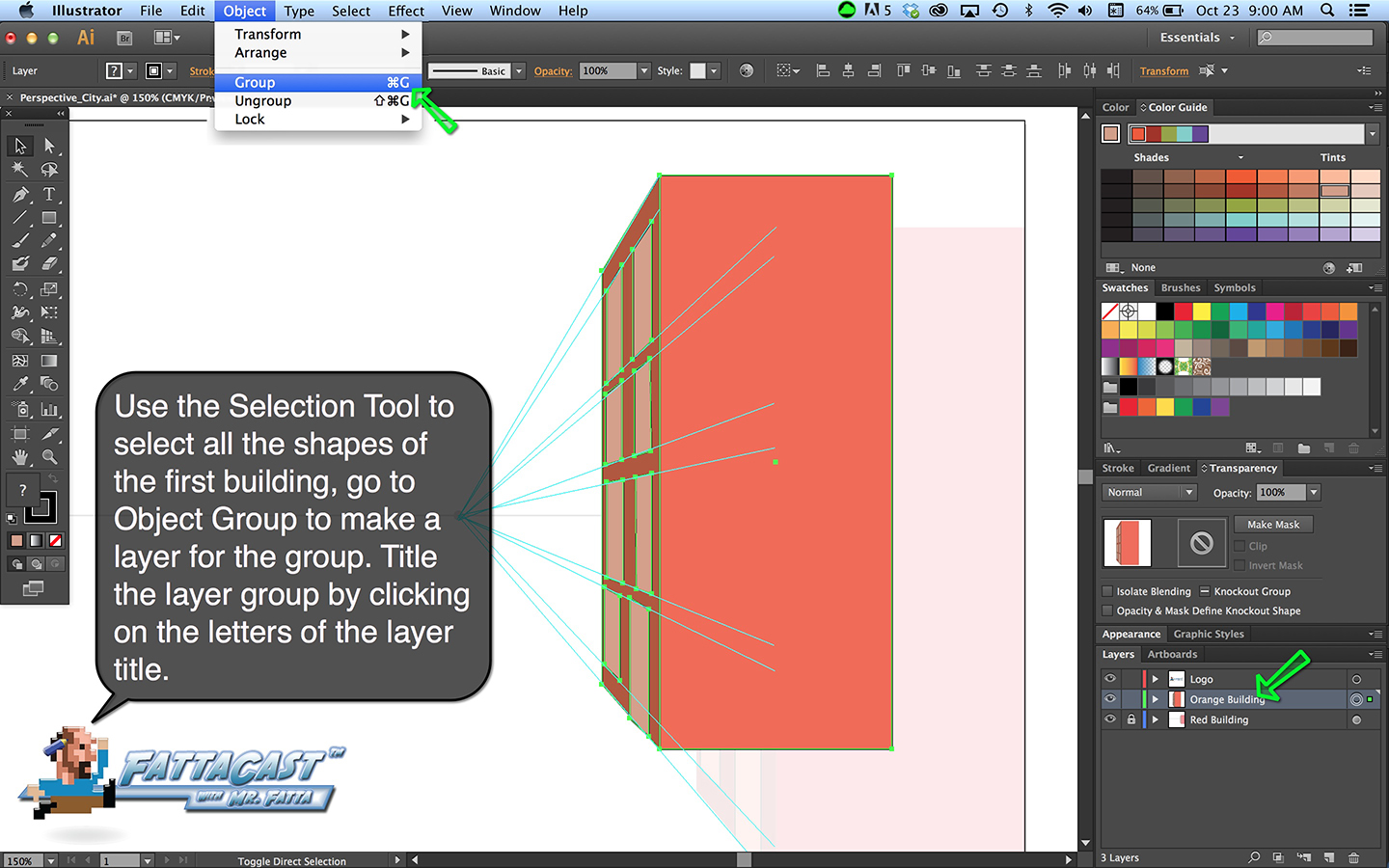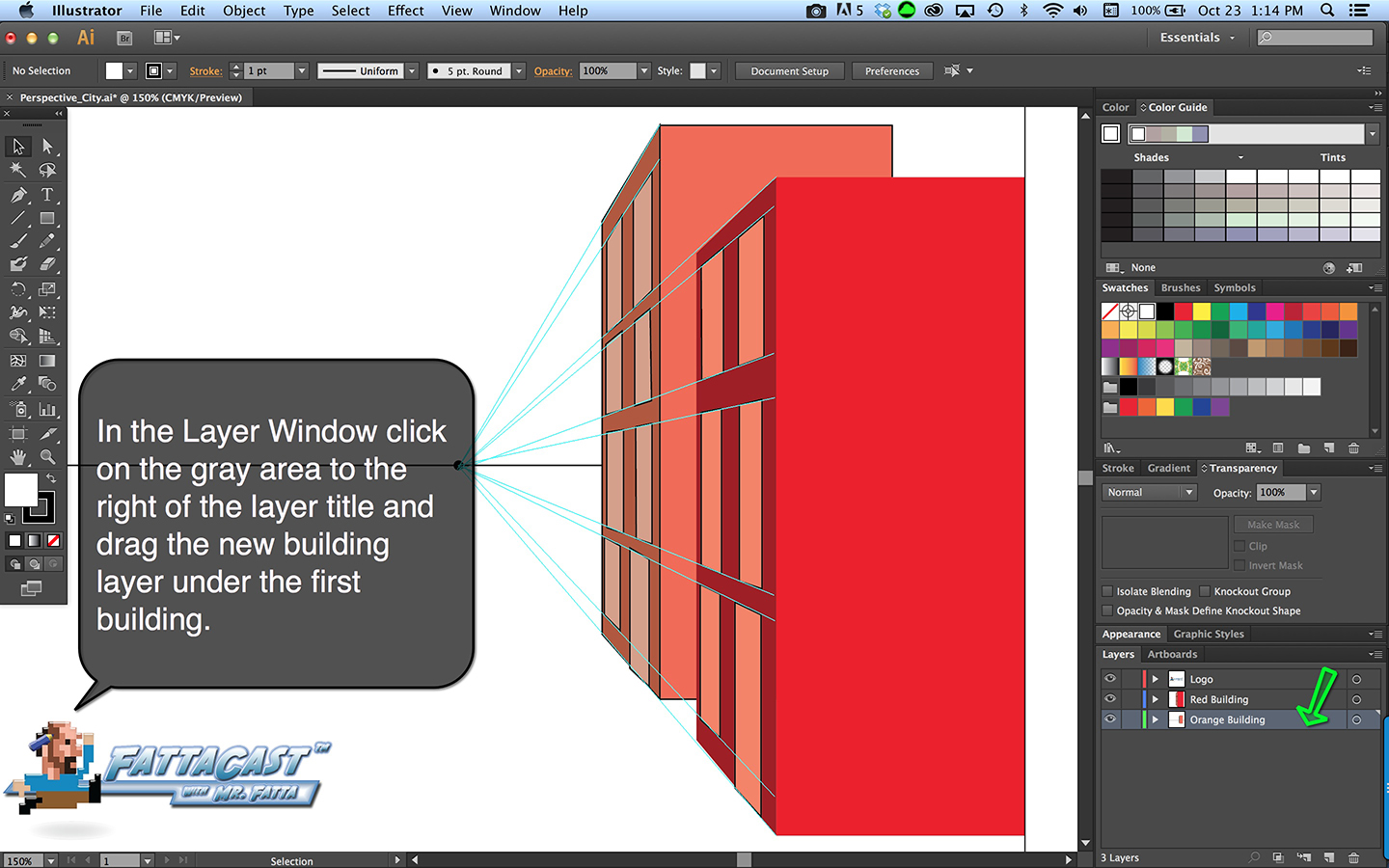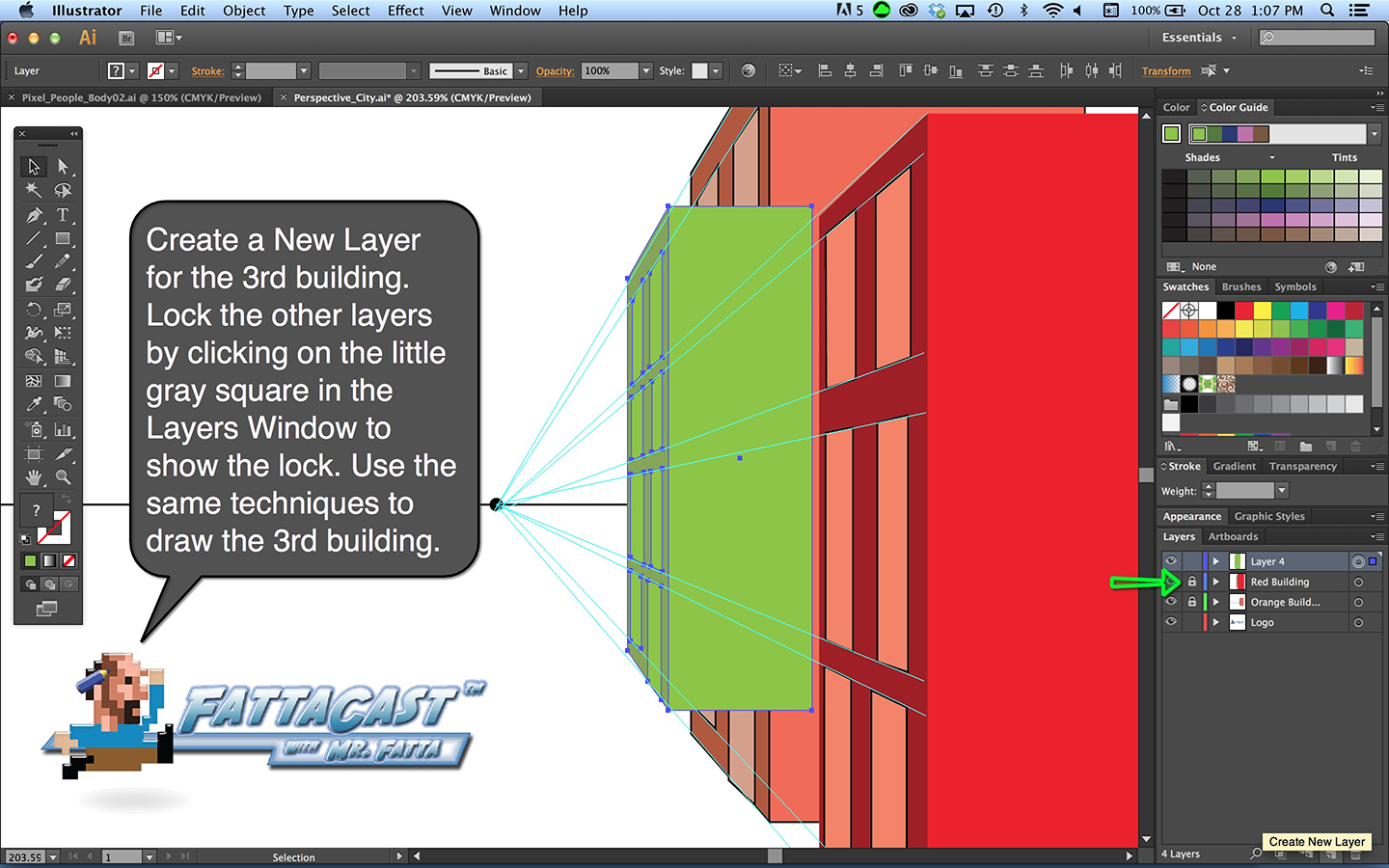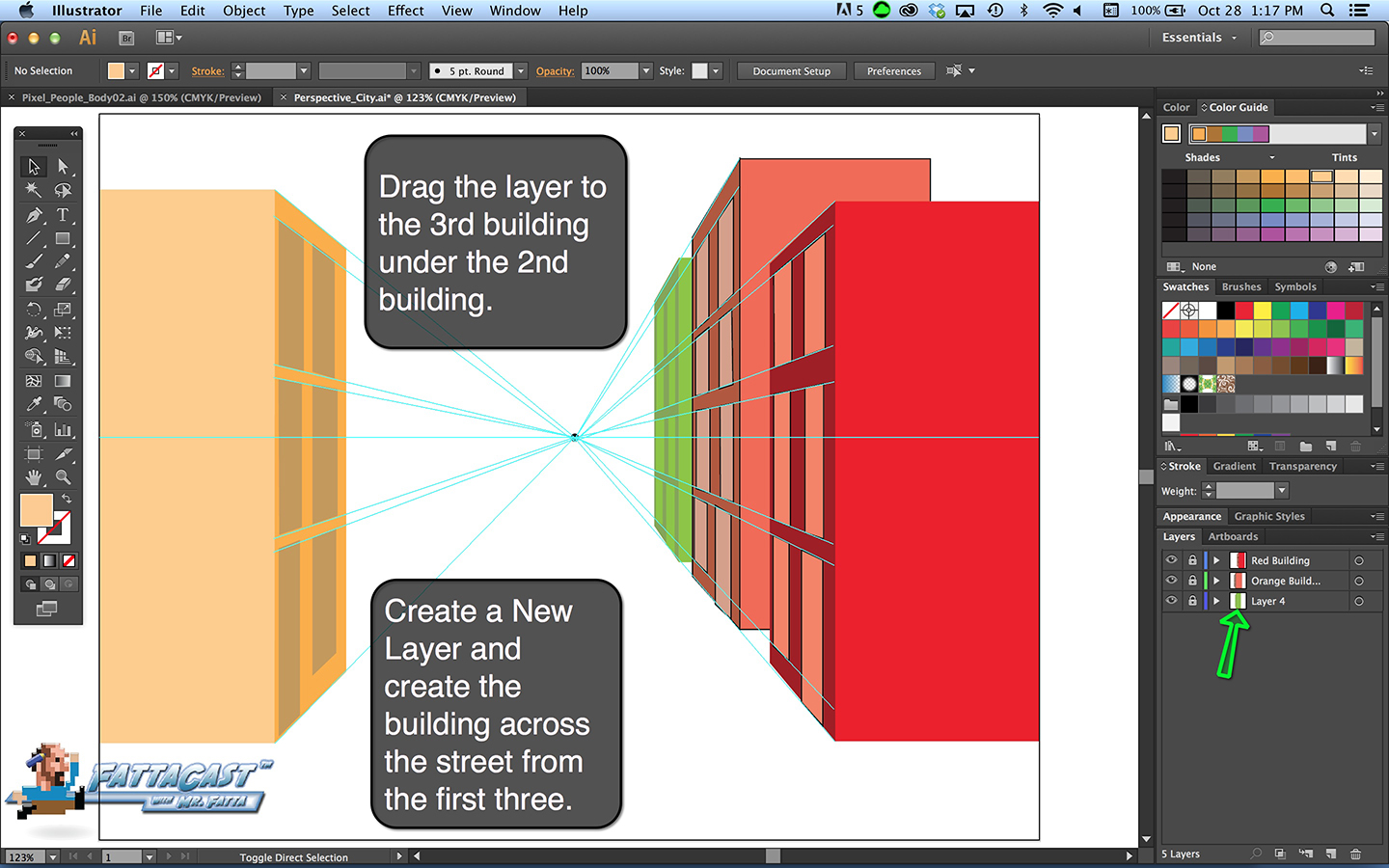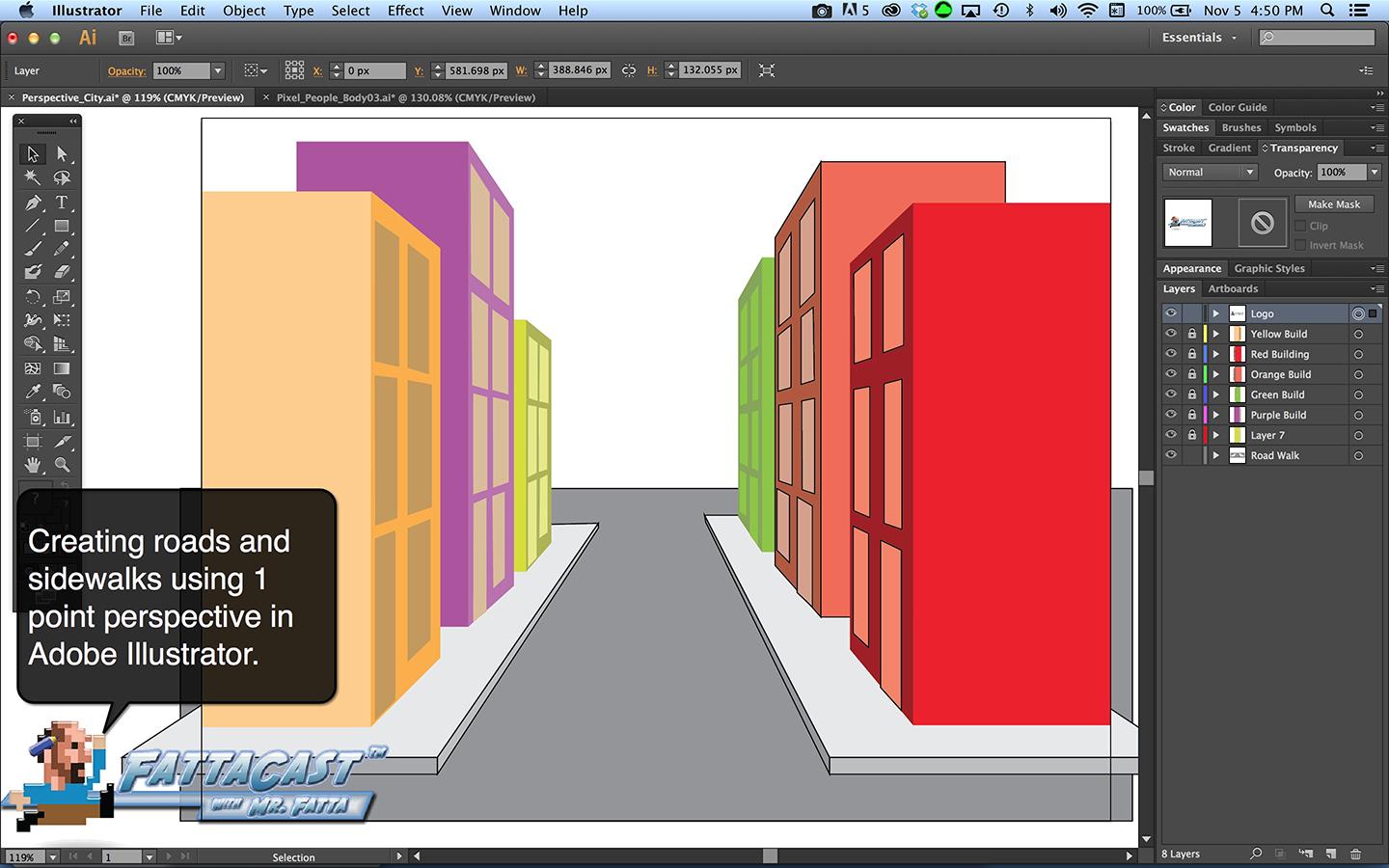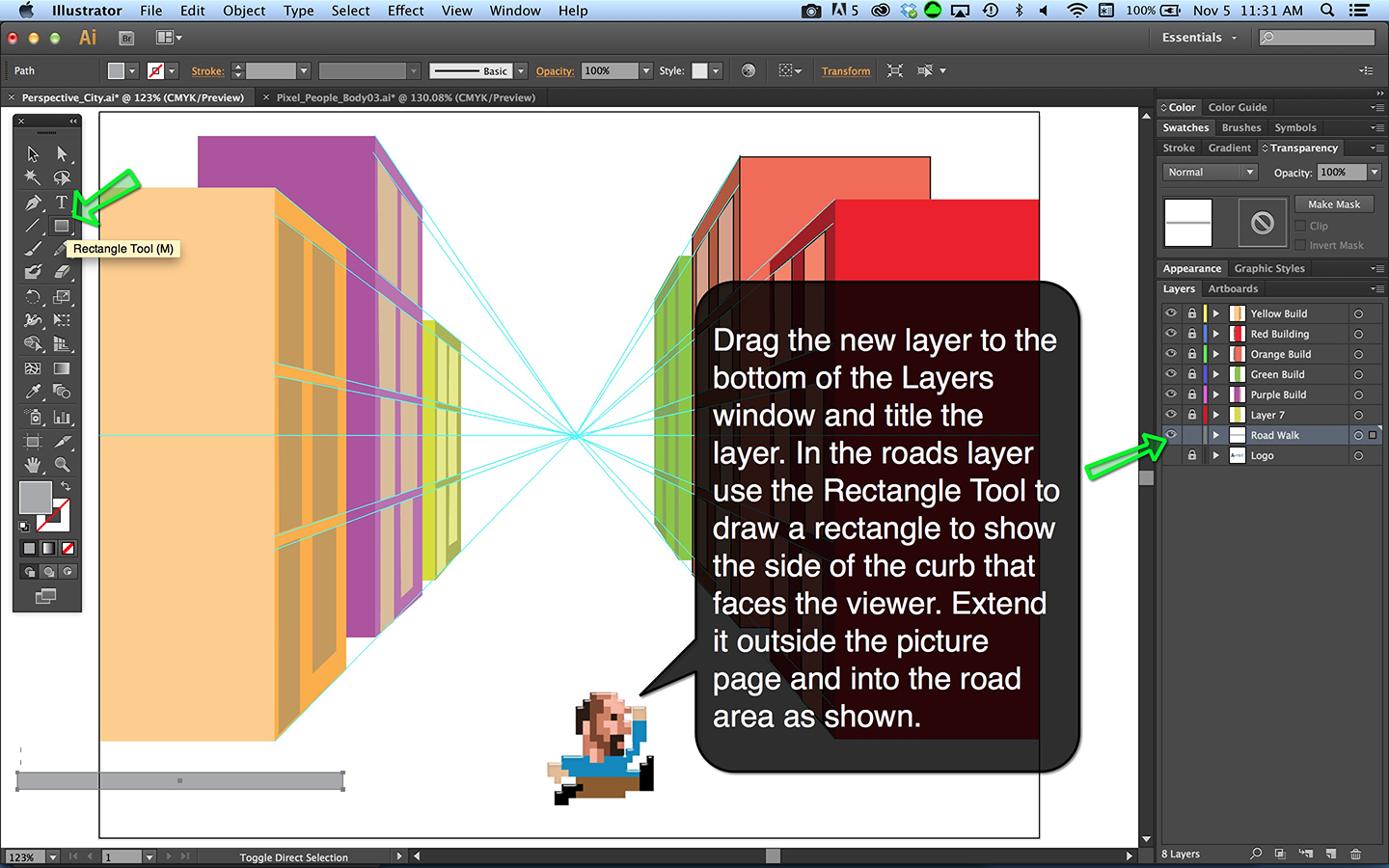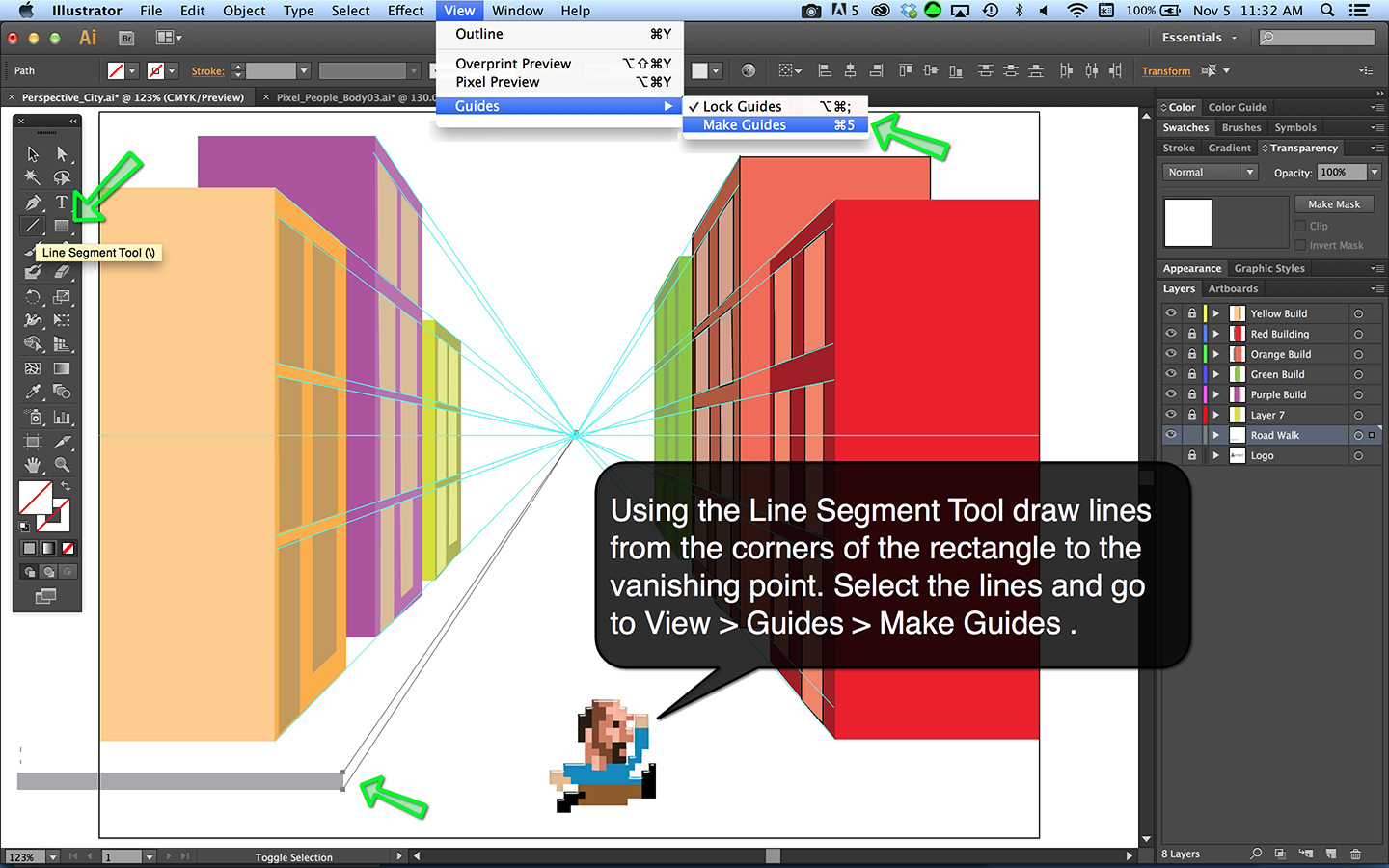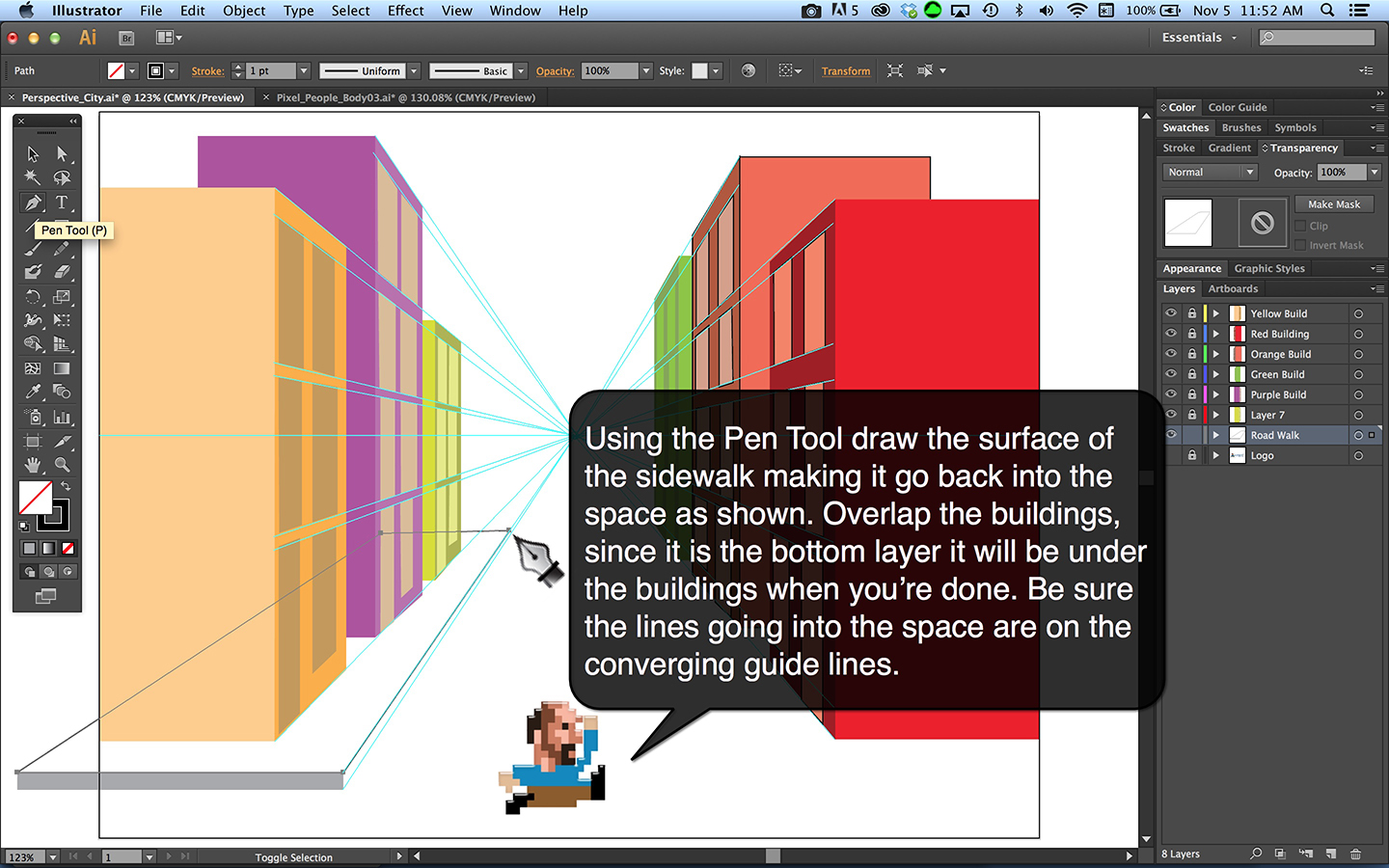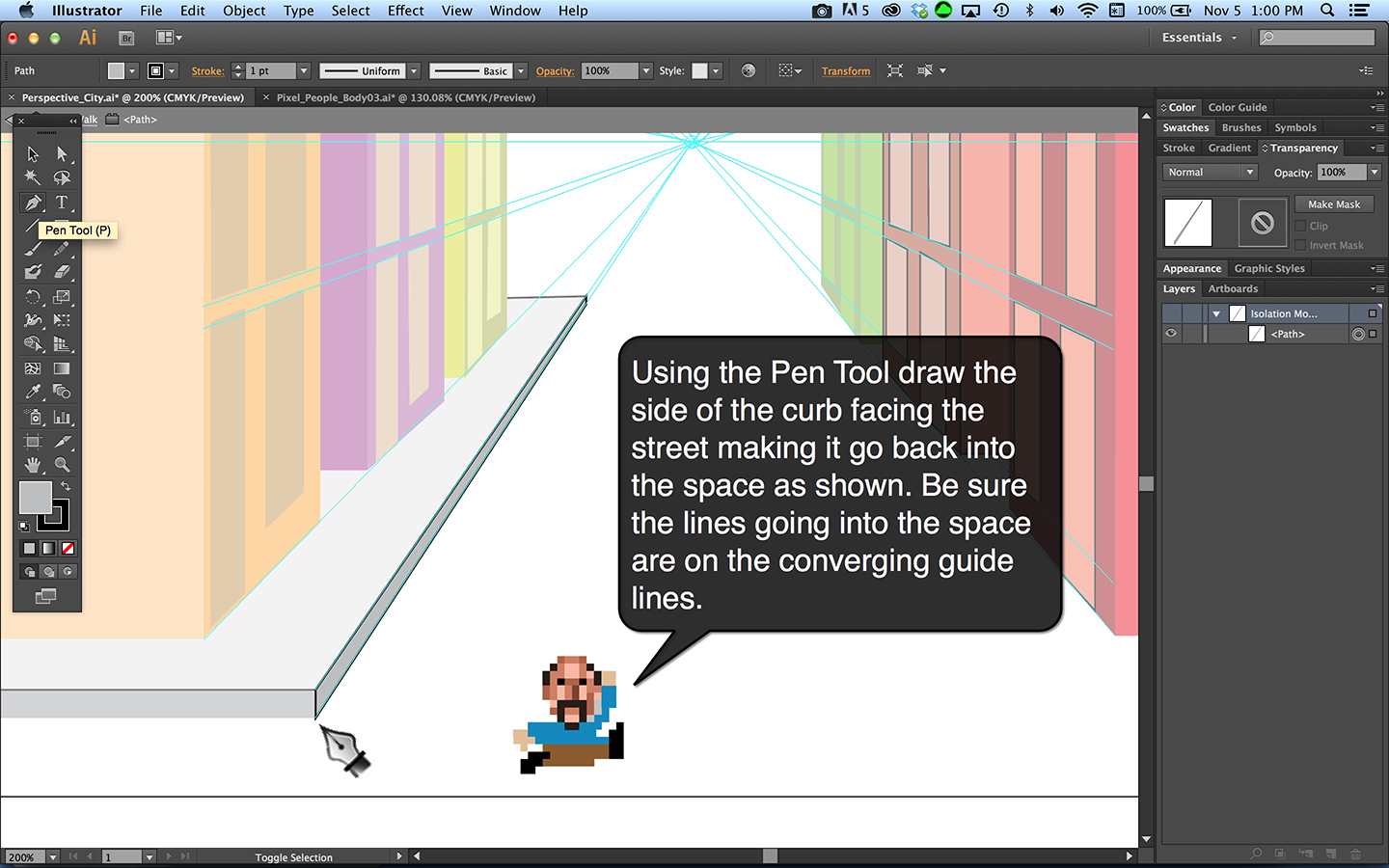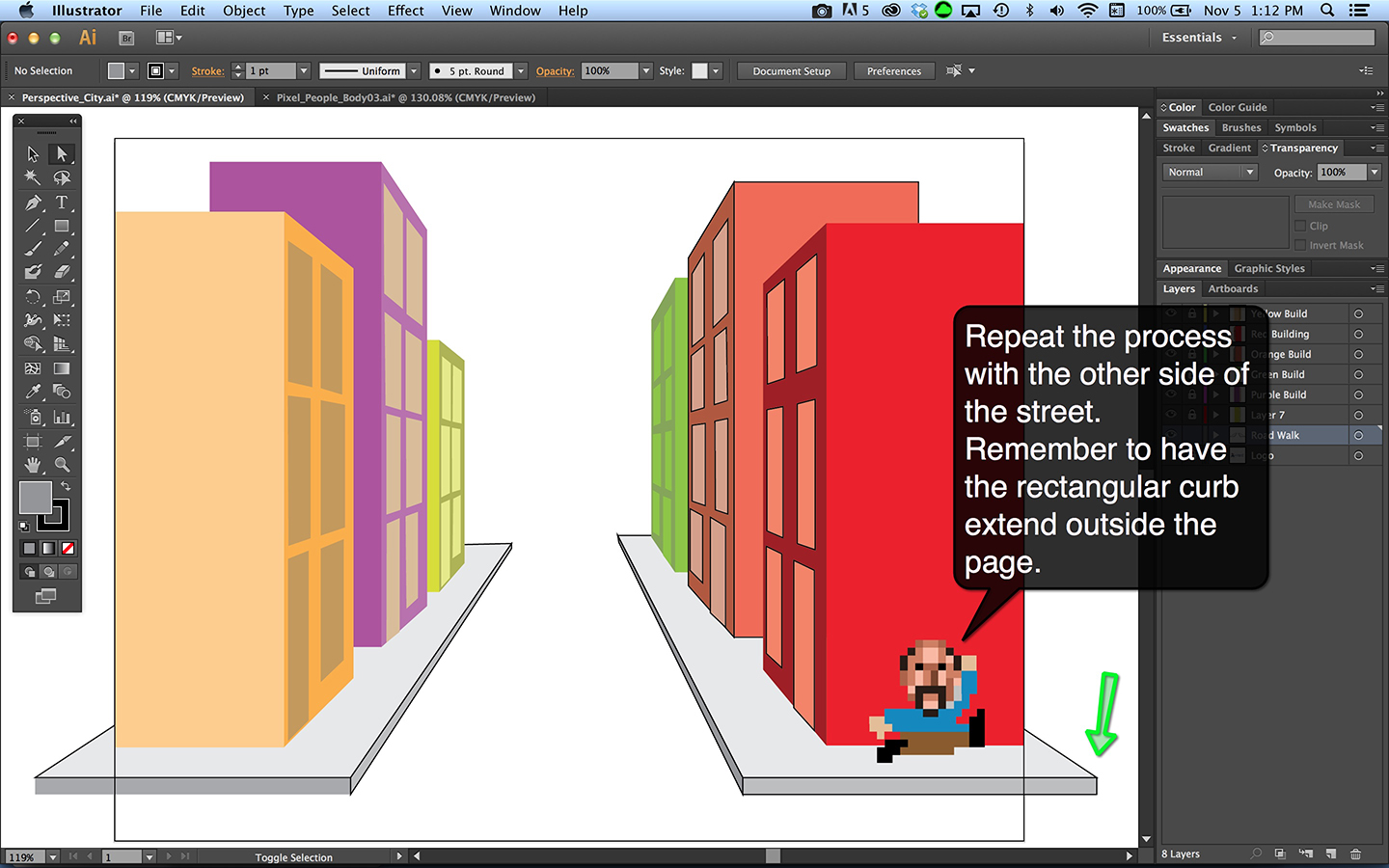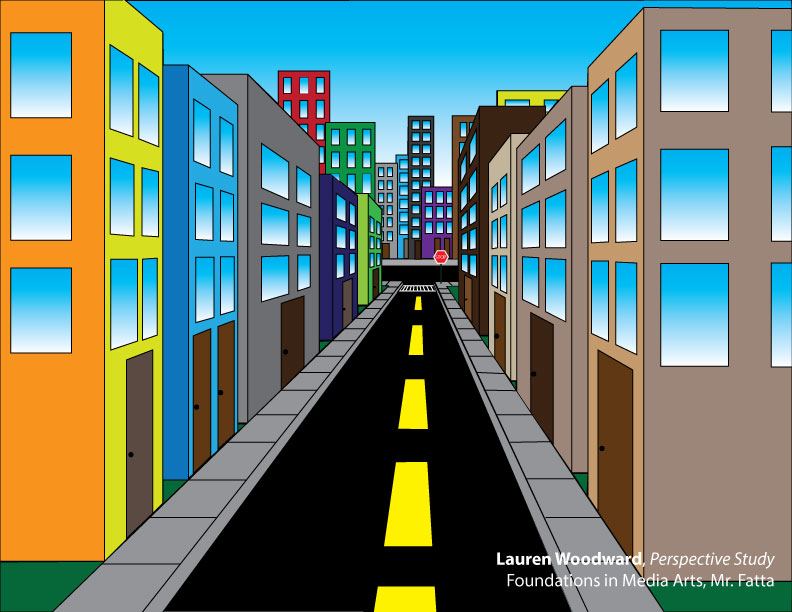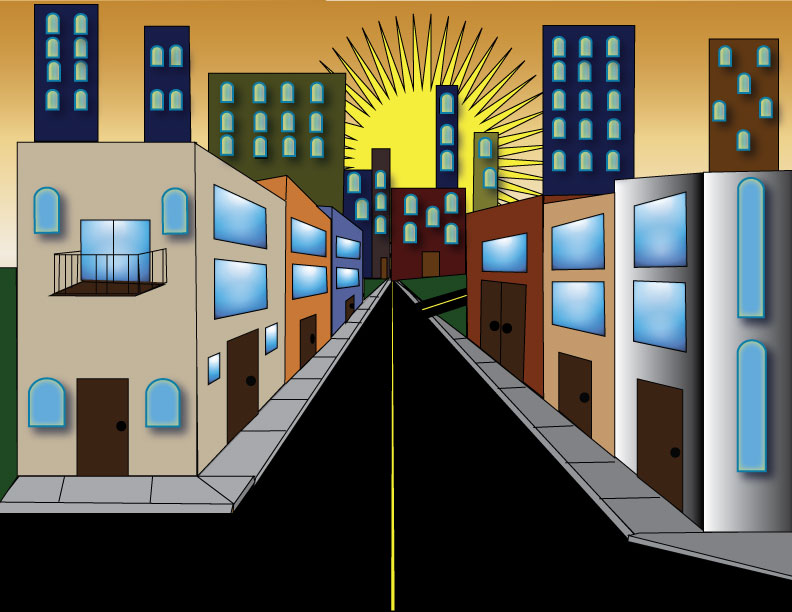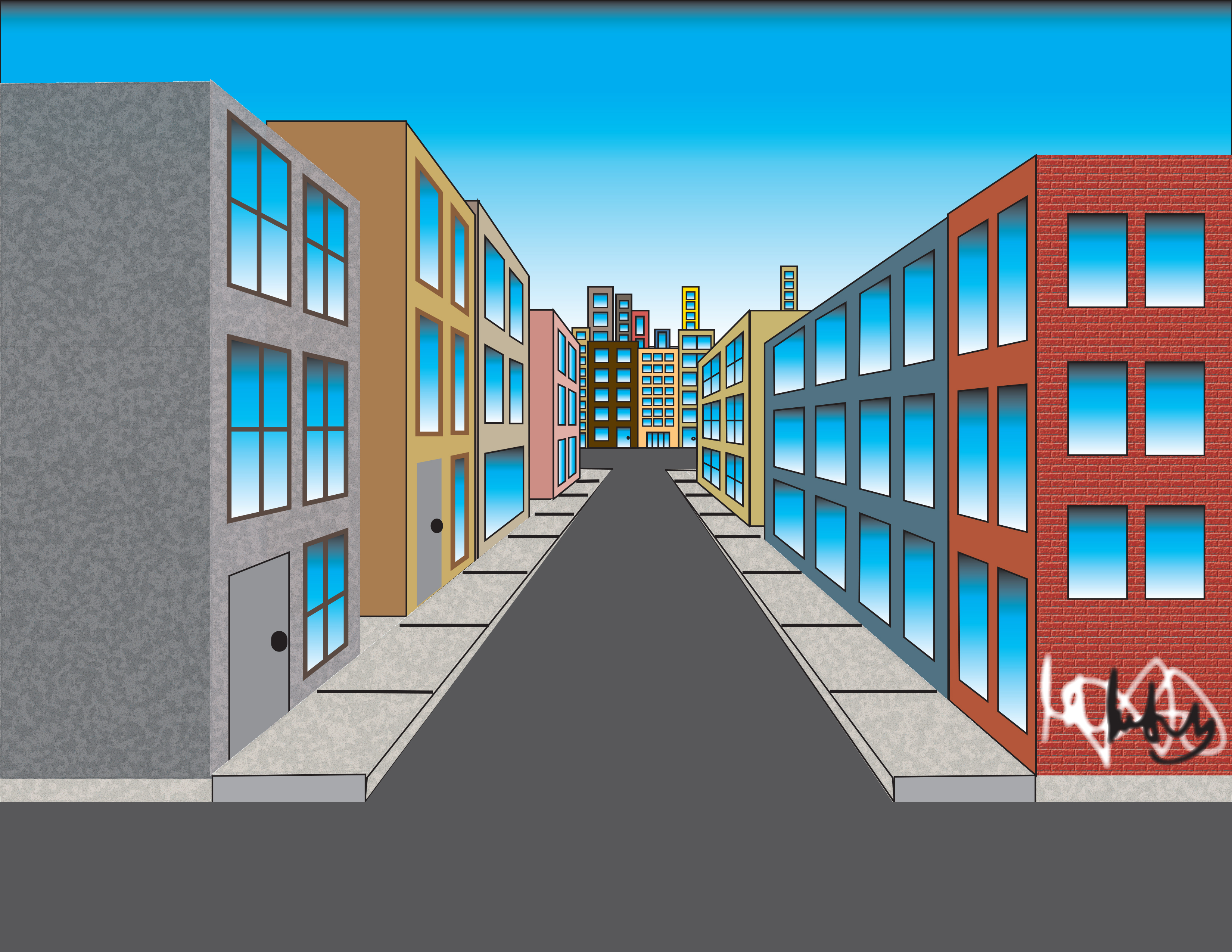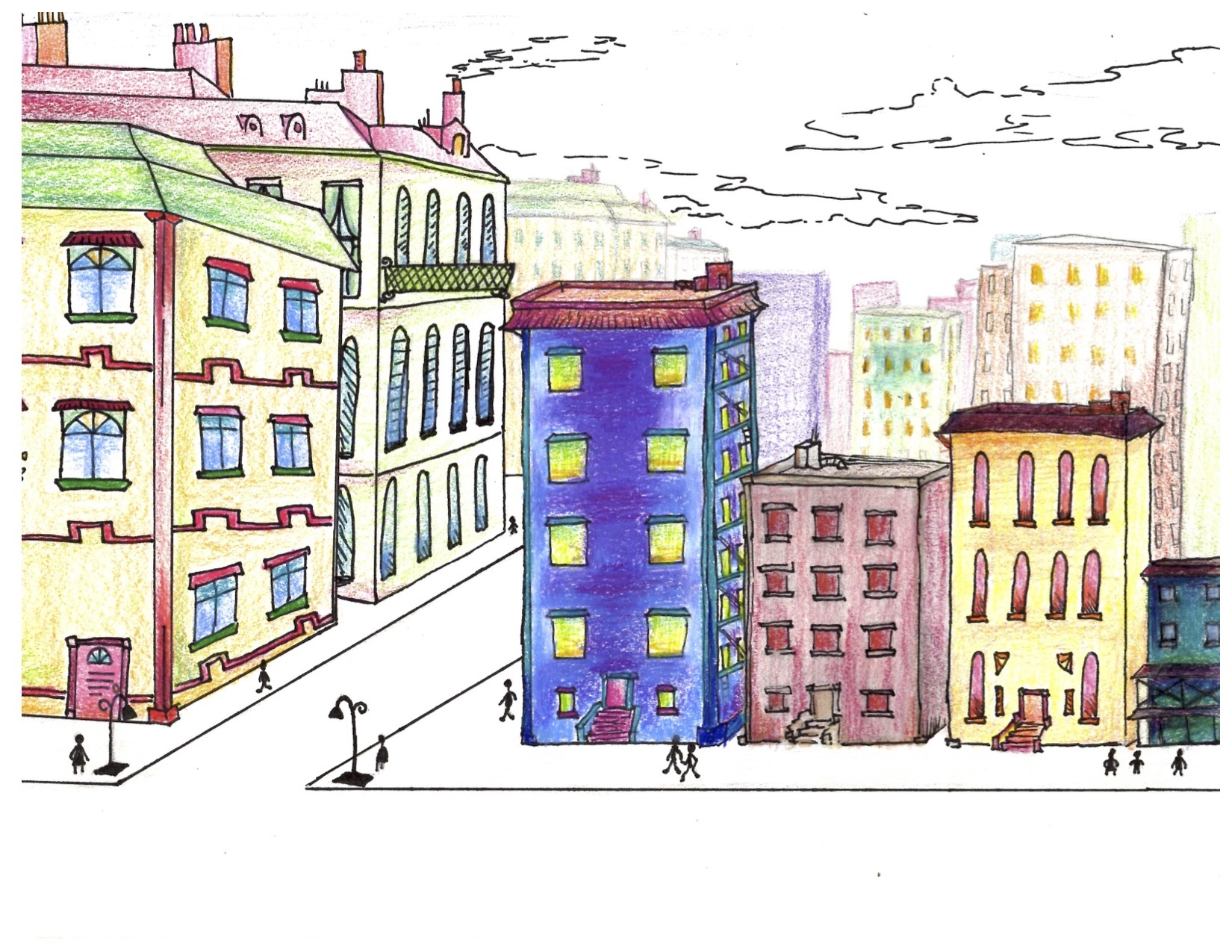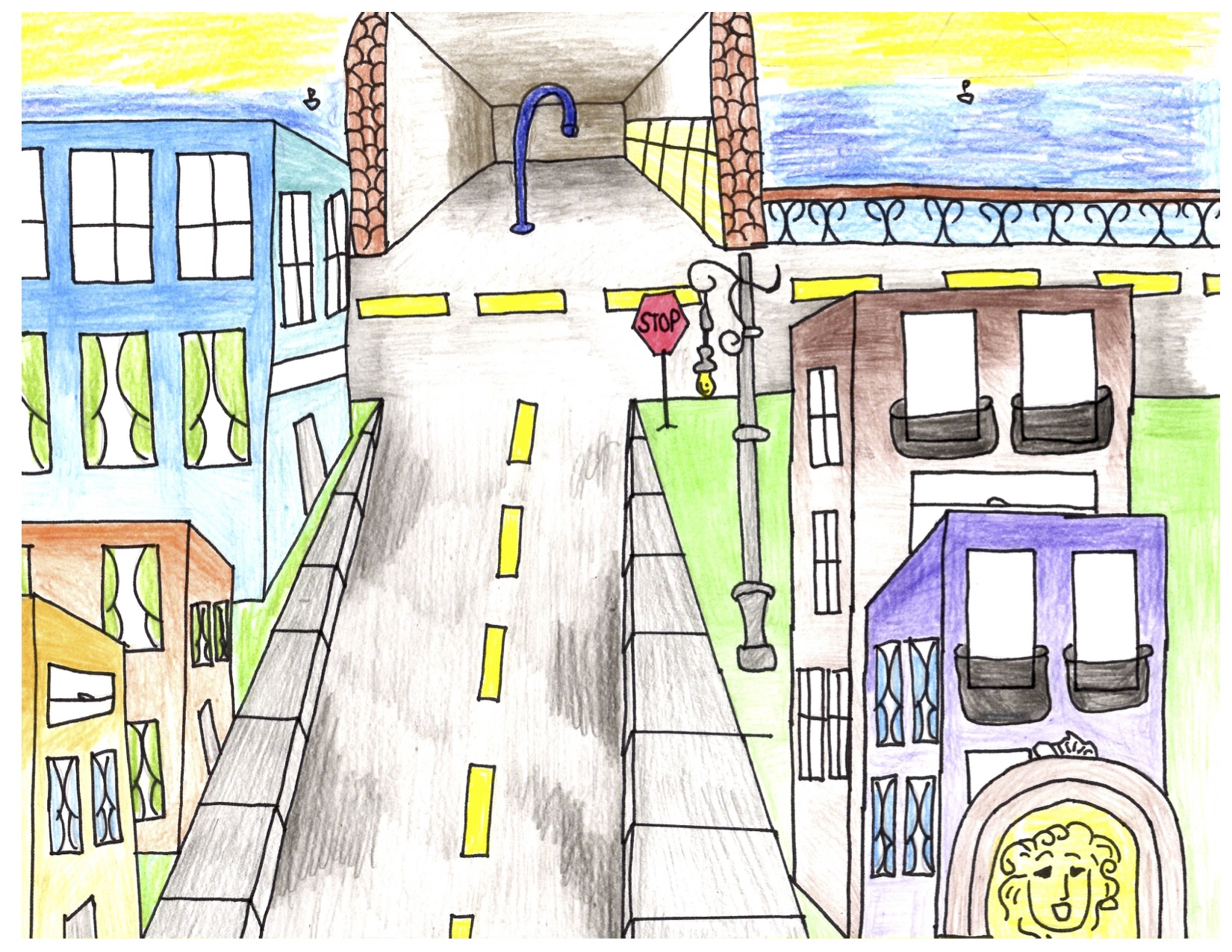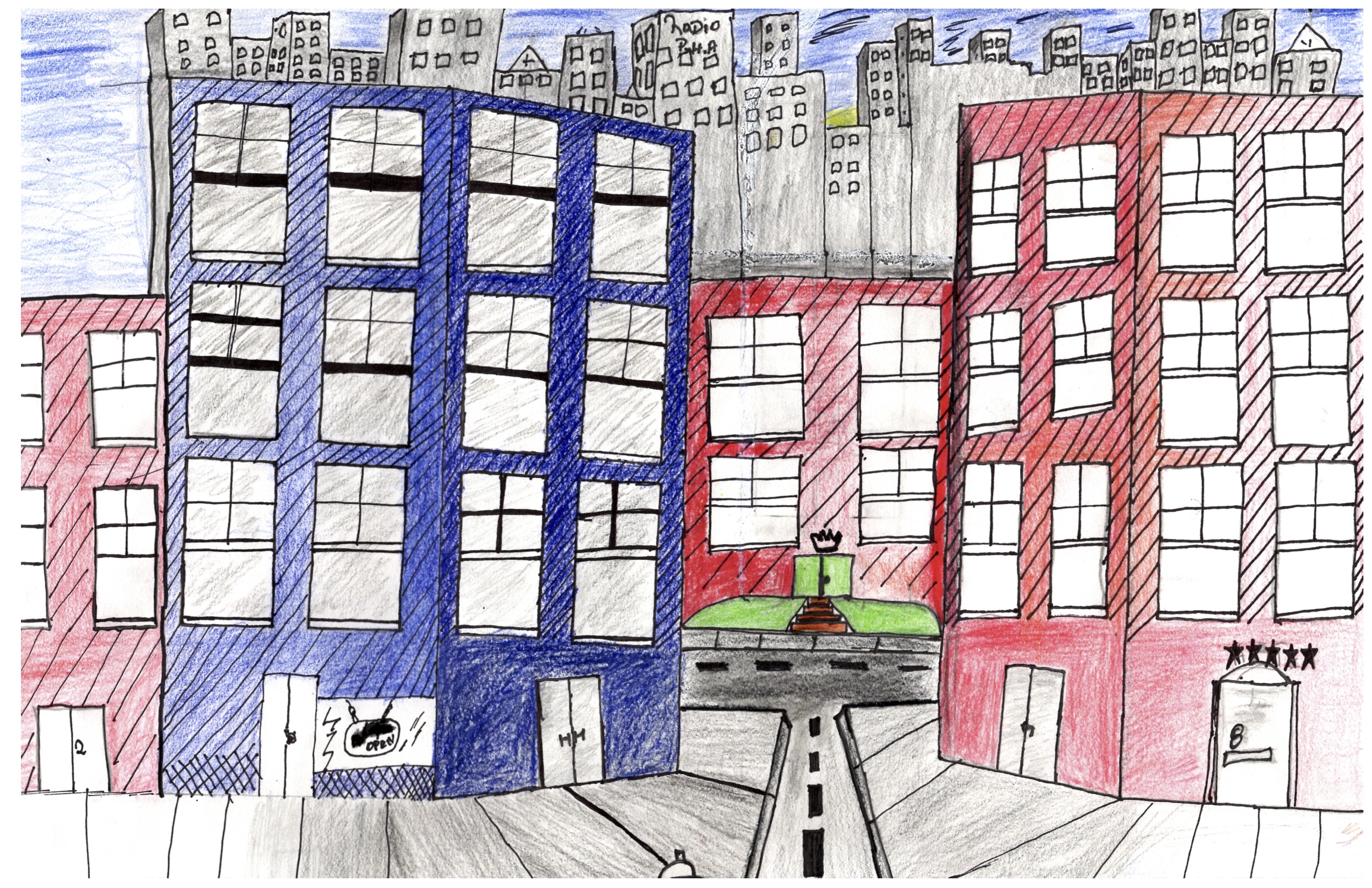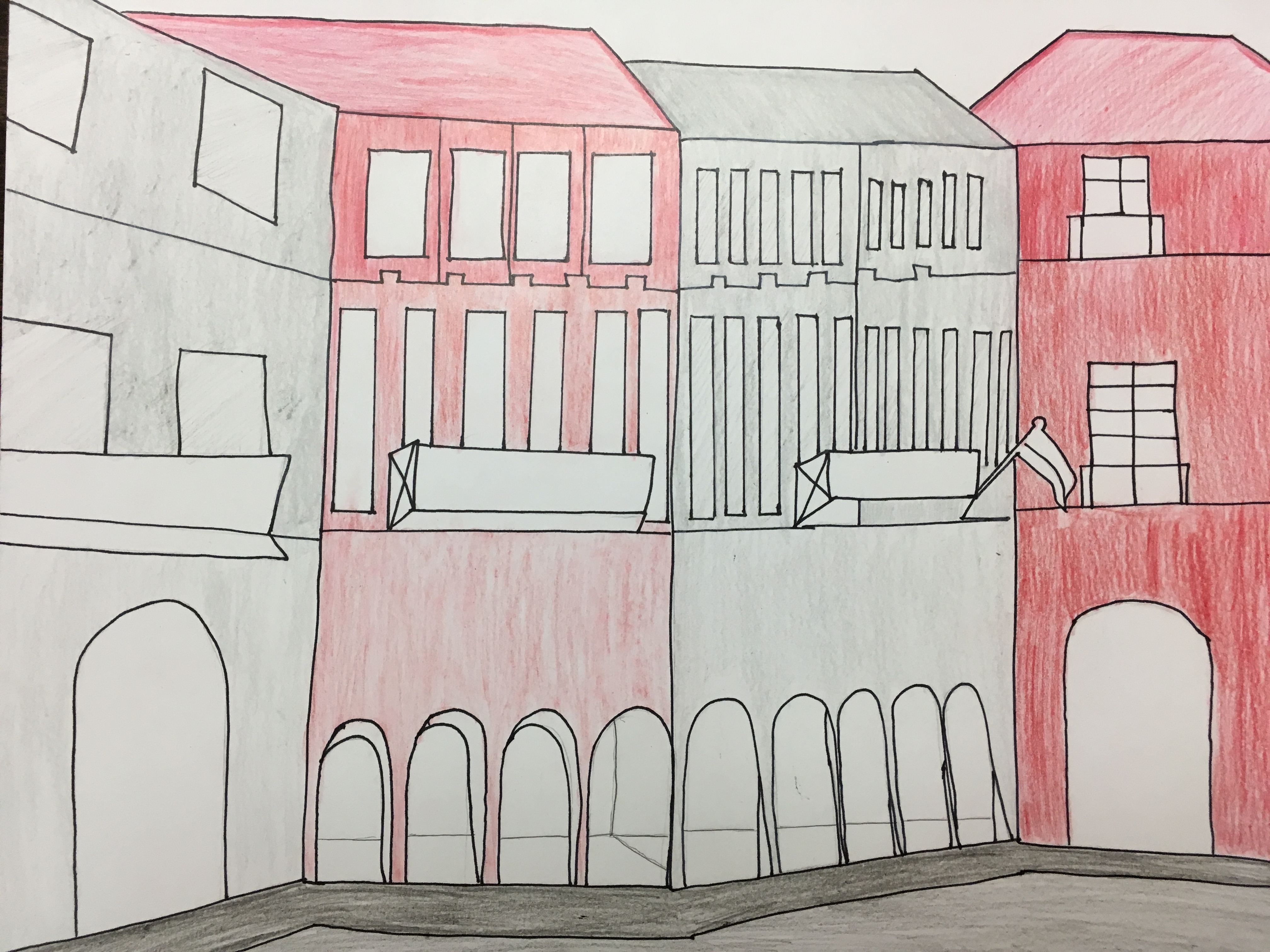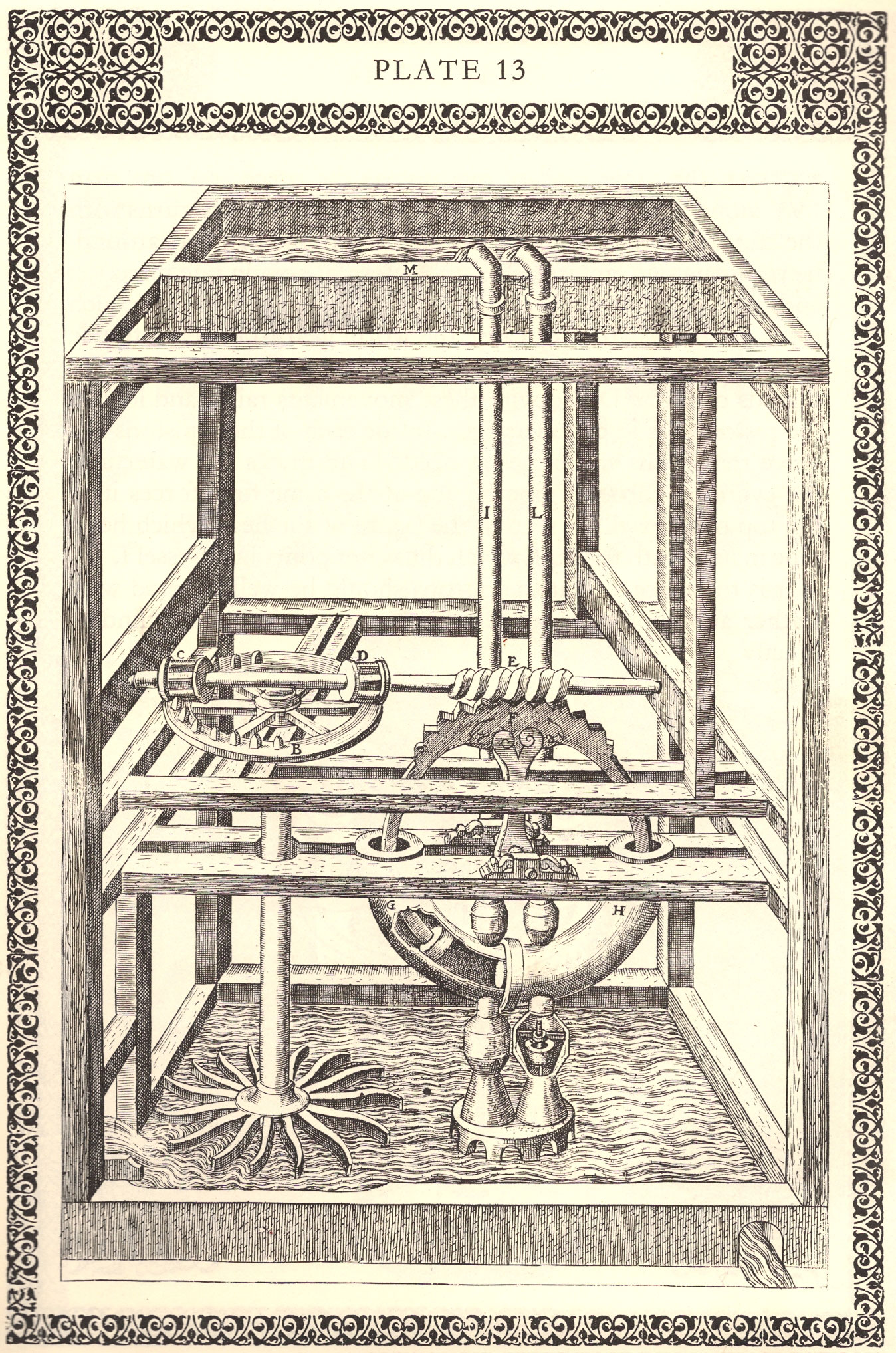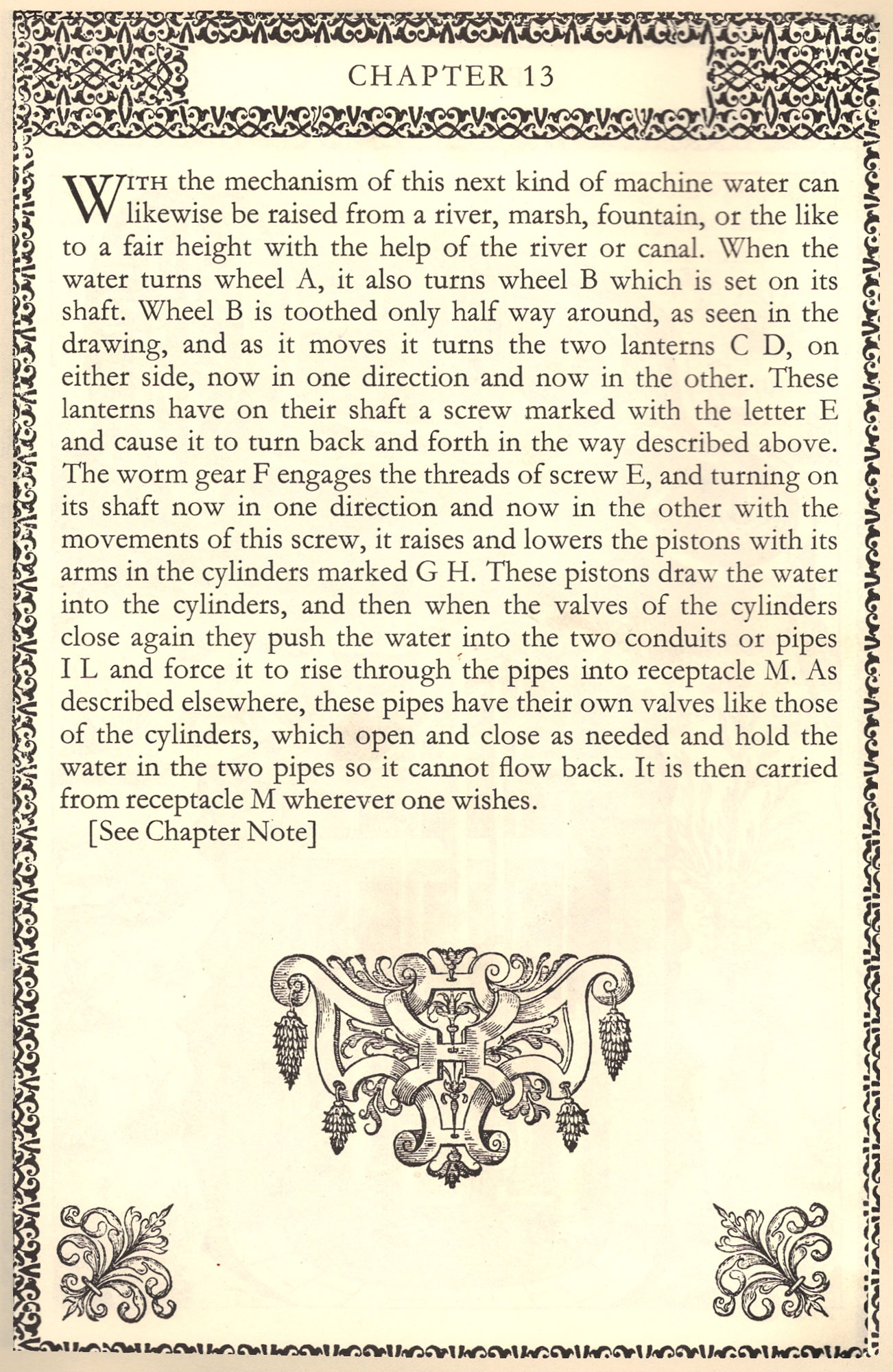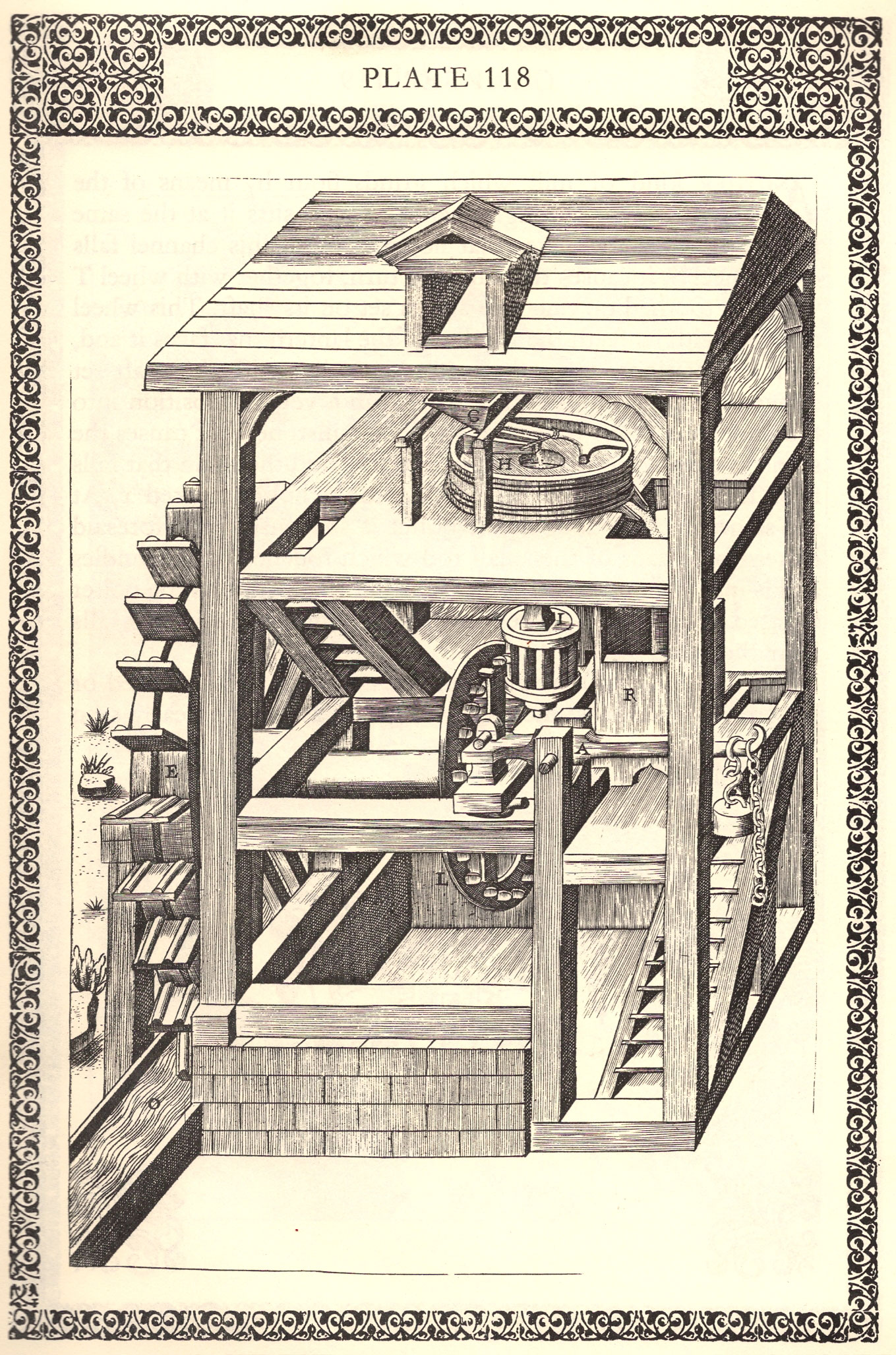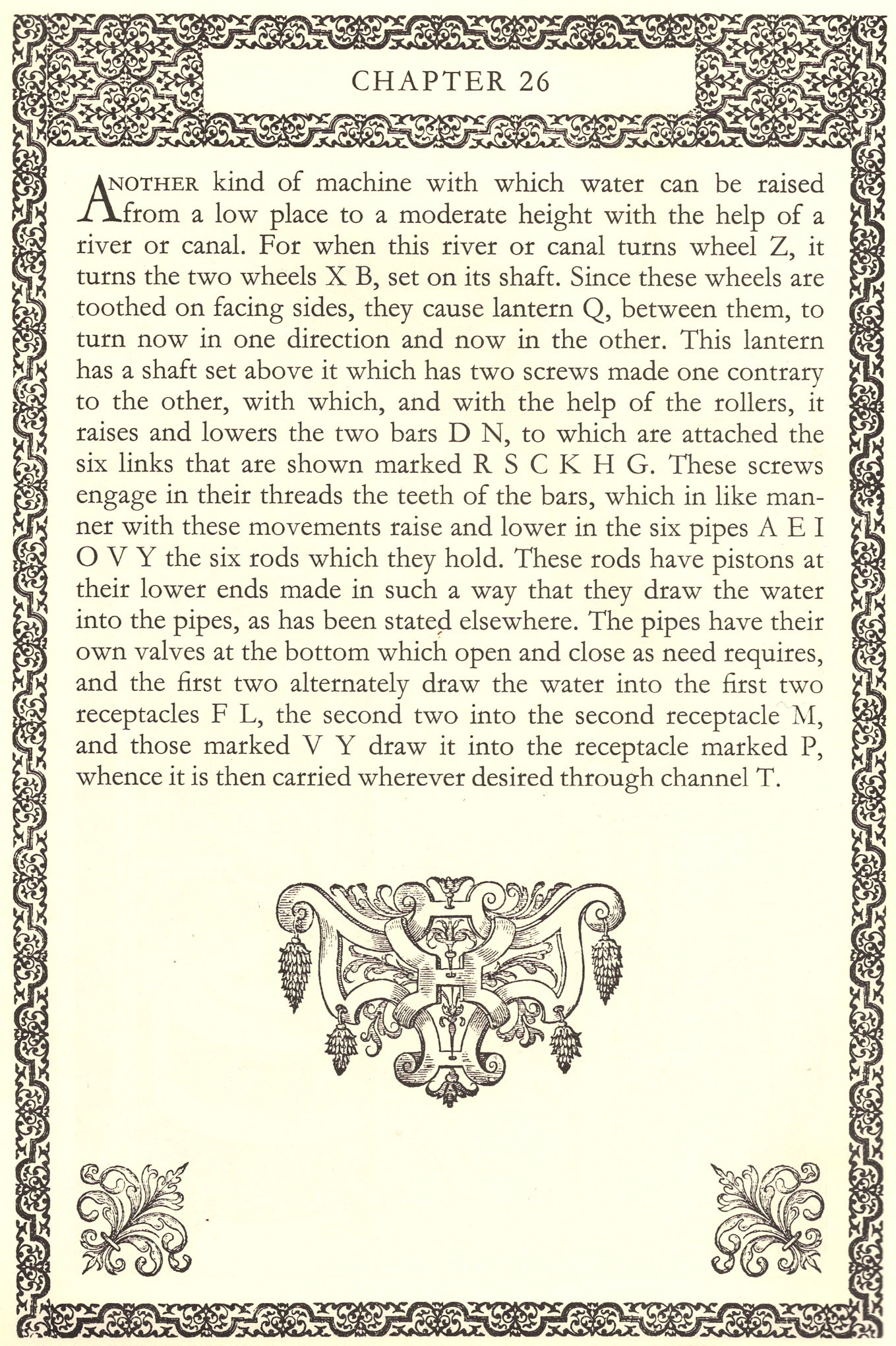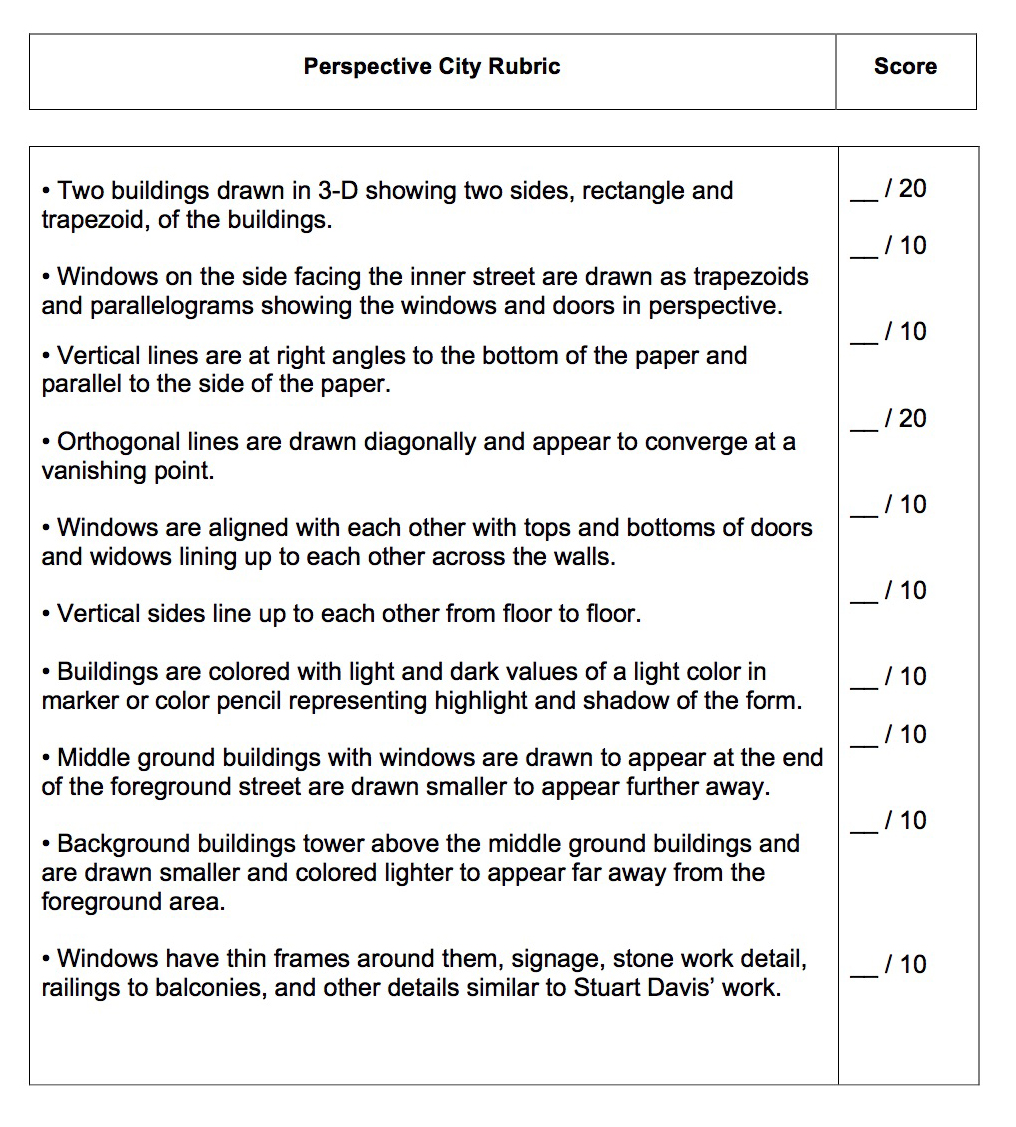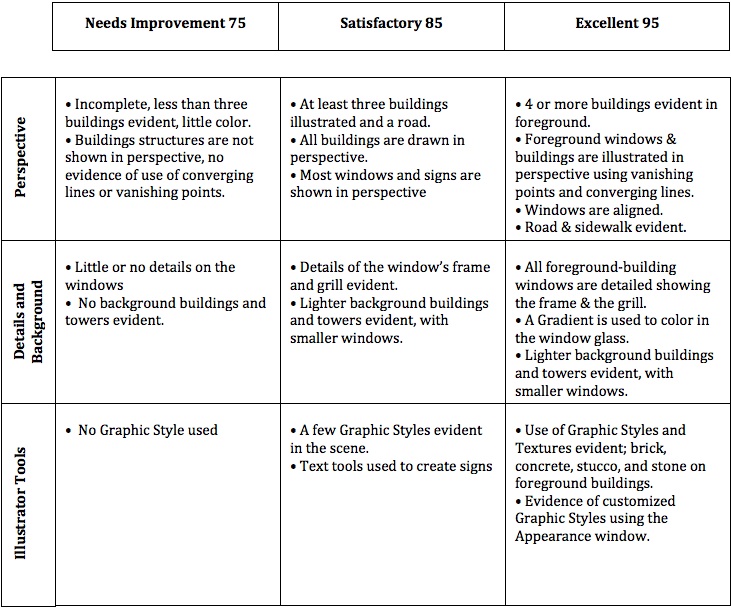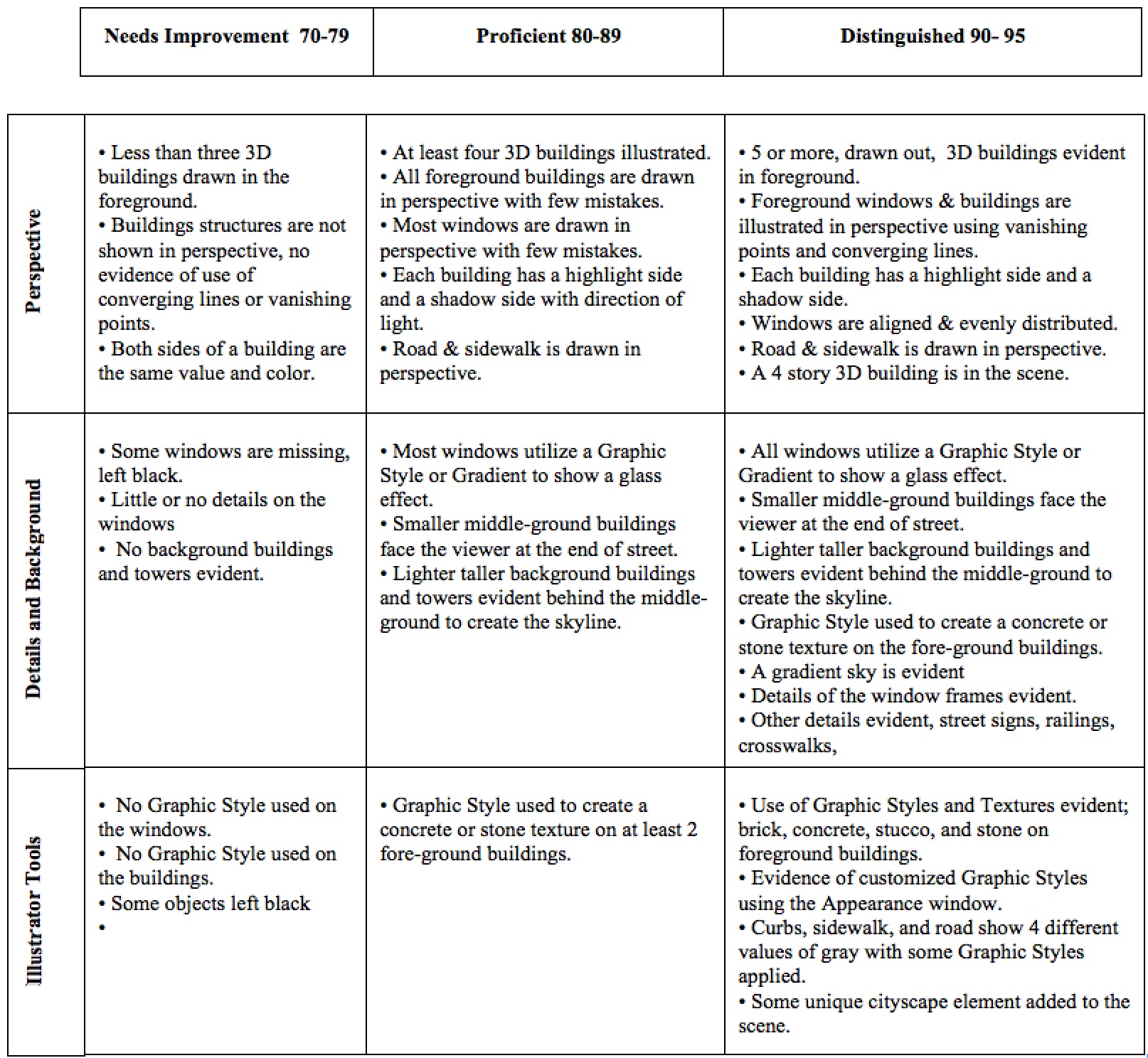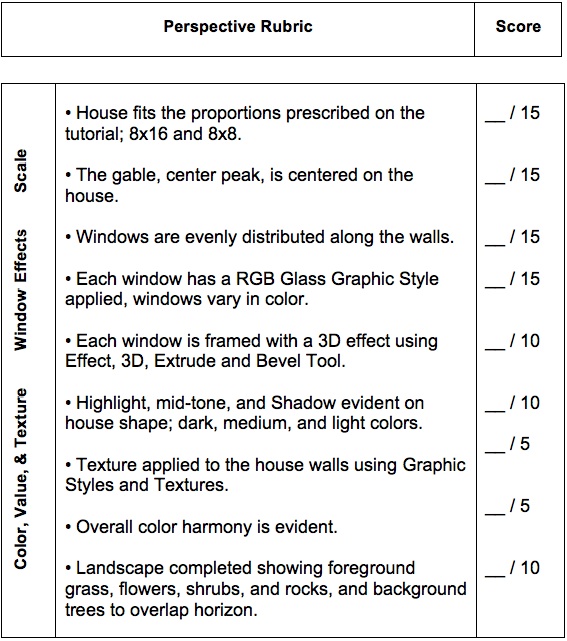Perspective is a technique used by artists and designers to show three dimensional objects on a flat surface. It was first developed during the Renaissance by artists and architects to depict buildings in a more realistic way. It is based on the understanding that as objects go back into space they appear to get smaller, this is called foreshortening. To decide how much smaller the objects need to be, perspective uses lines that come together to a vanishing point, called converging lines. One point perspective is used to show the interior of a room, In the painting titled, New York elevated by Stuart Davis, Davis uses 1 point perspective to show the view down a city street, all the lines going back into space come together at a single vanishing point. Here, Davis draws the windows in the background smaller than the windows in the foreground. Study the windows on the sides of the buildings, notice how the tops of each window line up with each other and are angled downward or upward towards a single vanishing point.Stuart Davis was born in Philadelphia in 1892. At the age of 16 his family moved to New Jersey and Stuart studied art in NYC. He became inspired by the excitement of the city; the tall skyscrapers, bright colors, and electric signs, began to motivate him to paint pictures using bright colors. When he was older Stuart Davis visited Paris, France. There he became inspired by an art movement called Cubism, a style of painting that shows objects as basic geometric shapes like cubes and circles. He died in 1964 at the age of 72.
Stuart Davis
Perspective Lines and Planers
New York City in Perspective
Vocabulary
Converge in perspective, lines coming together at the vanishing point.
Depth the illusion of real space on a flat surface
Foreshortening to portray or show (an object or view) as closer than it is or as having less depth or distance, as an effect of perspective or the angle of vision.
Gradient a gradual change from one value of color to the next or from one color to another.
Highlight the lightest part of an object that is under direct light.
Horizon a horizontal line dividing the sky & ground, or the wall & floor (interior).
Overlapping placing one object over another to give the illusion of space.
Perspective a system of drawing that gives the illusion of depth on a flat surface using parallel lines that converge at one or more vanishing points.
Scale the relationship of size when the same object is close and far away.
Shadow the darker areas of an object where light is not as strong.
Texture an element of design that refers to the surface, ex rough, smooth, fuzzy.
Vanishing point in perspective, an imaginary point or points on the horizon where parallel lines recede and converge.
Value the lightness or darkness of a color or a tone.
Tutorial | 1 Point Perspective
Tutorial | Roads and Sidewalks
Student Graphic Perspectives
Student Perspective Drawings
Learning Target: I can assess, refine, and evaluate my drawings by comparing them to established criteria listed in the project rubric and adding attributes that are missing or need more refining.
